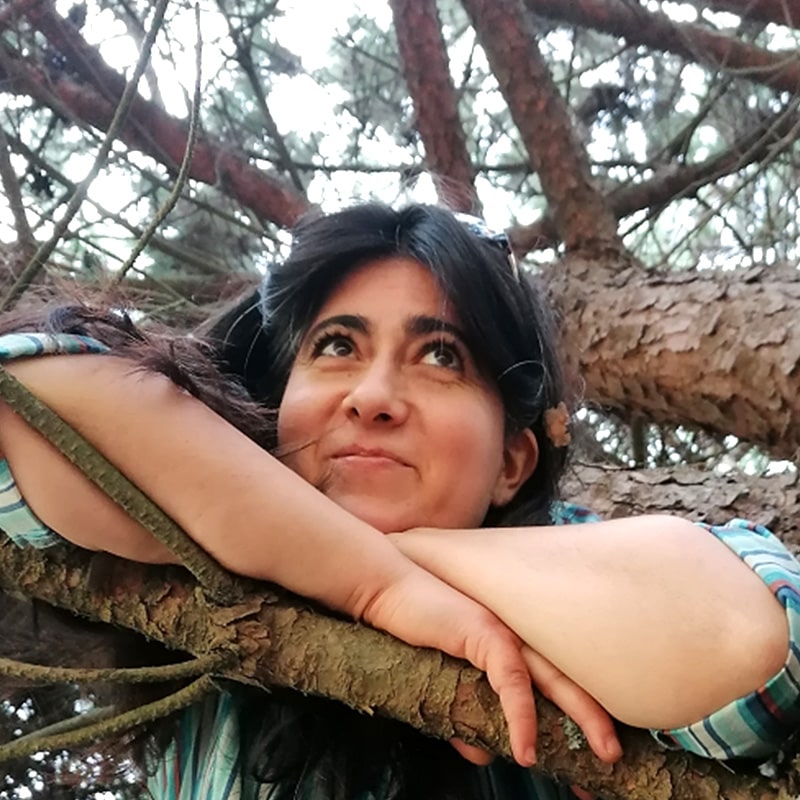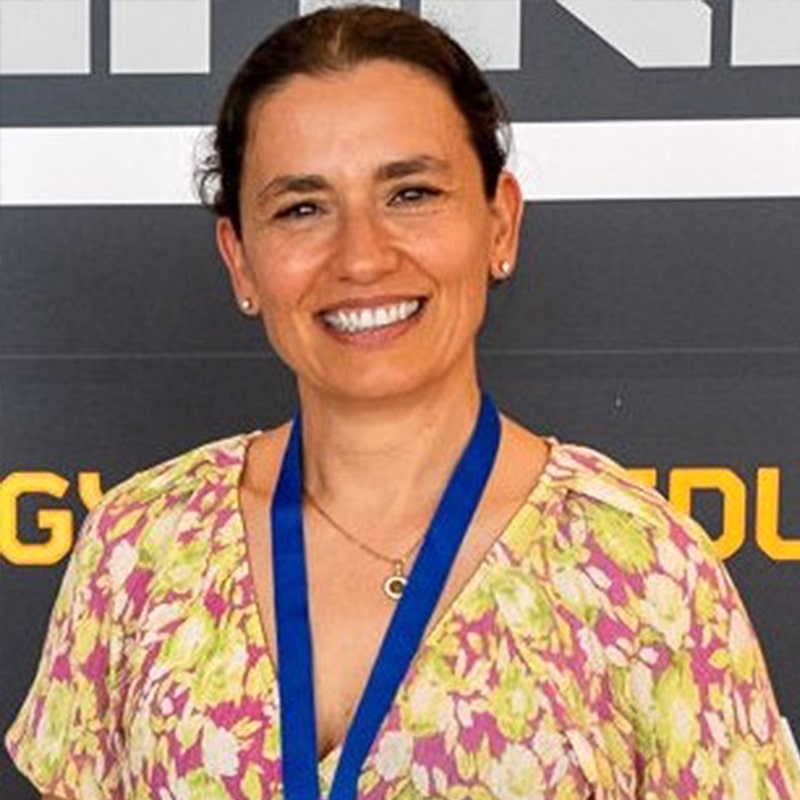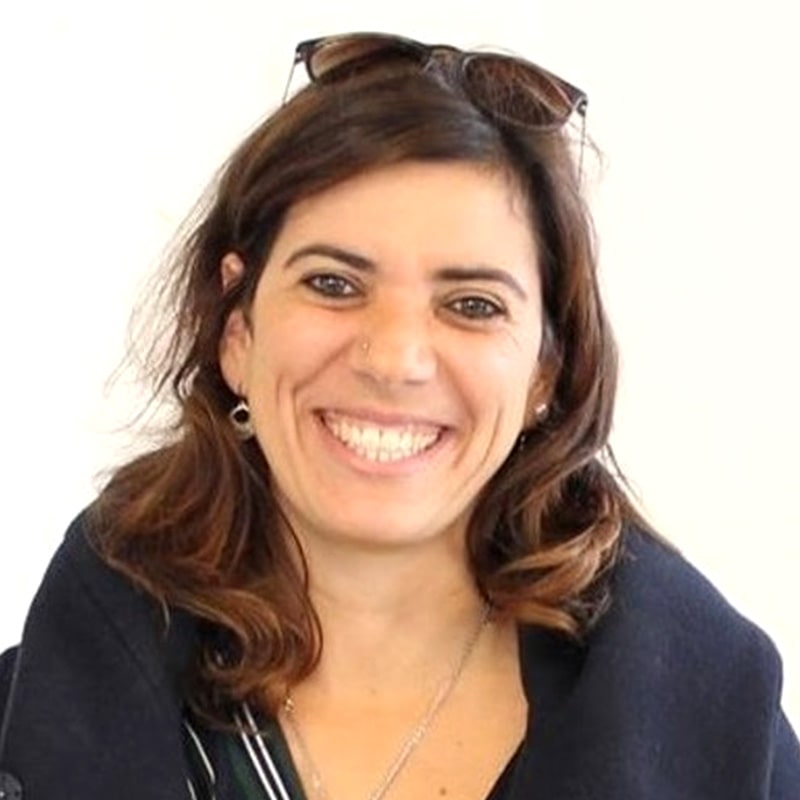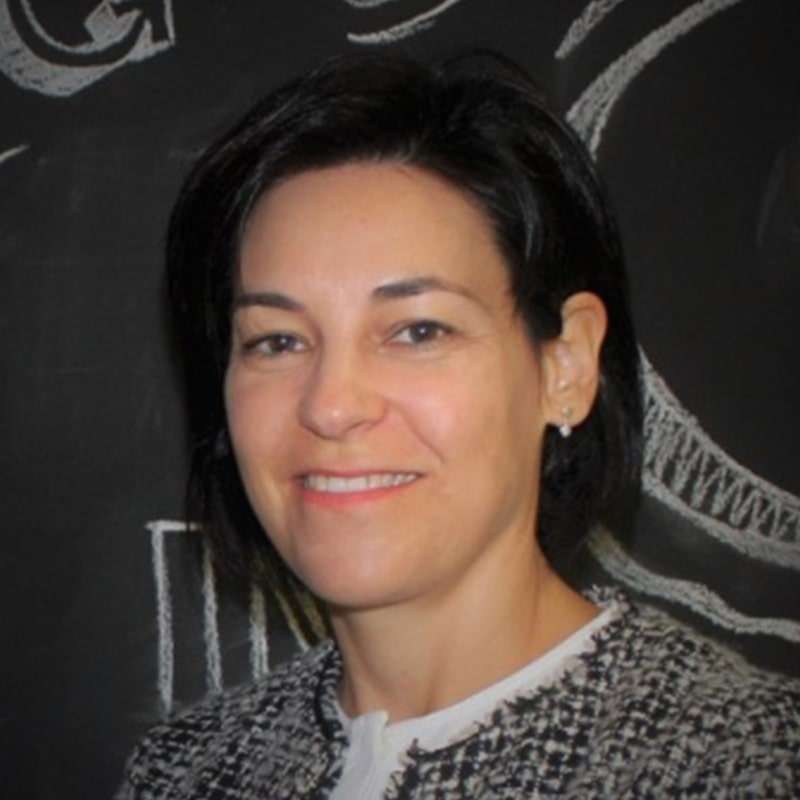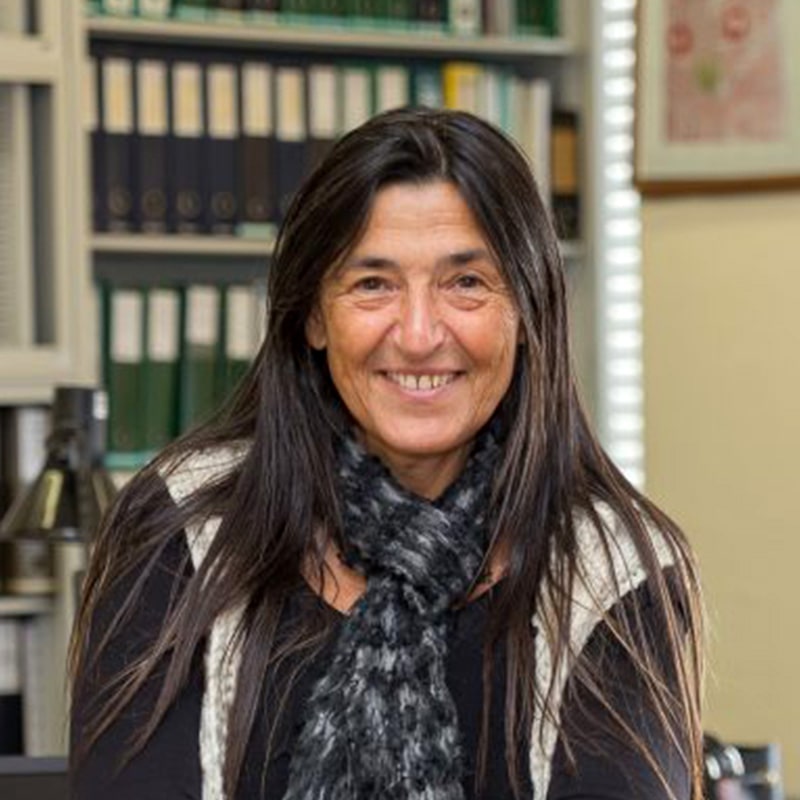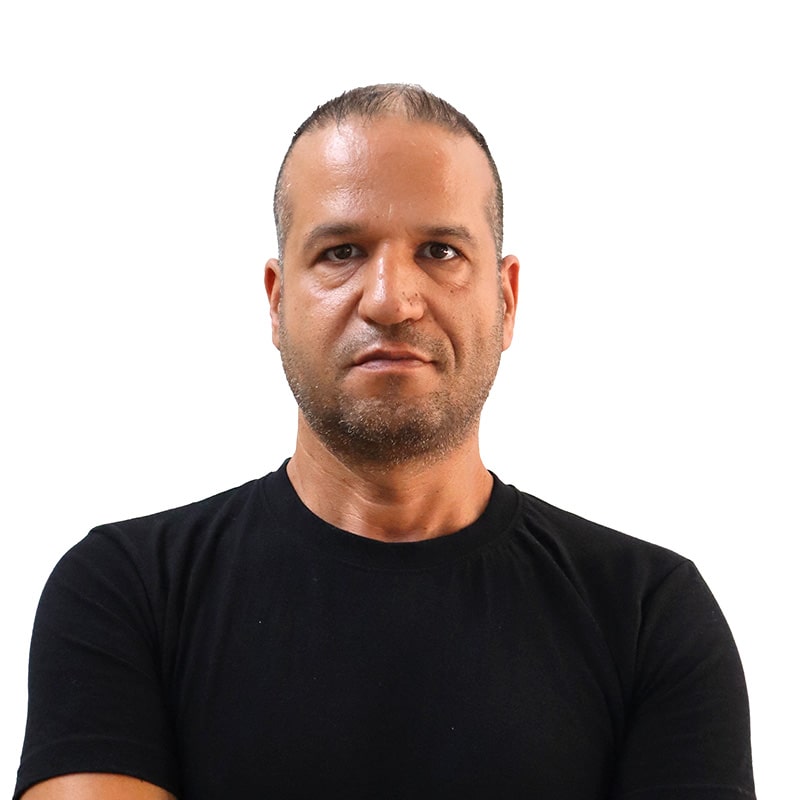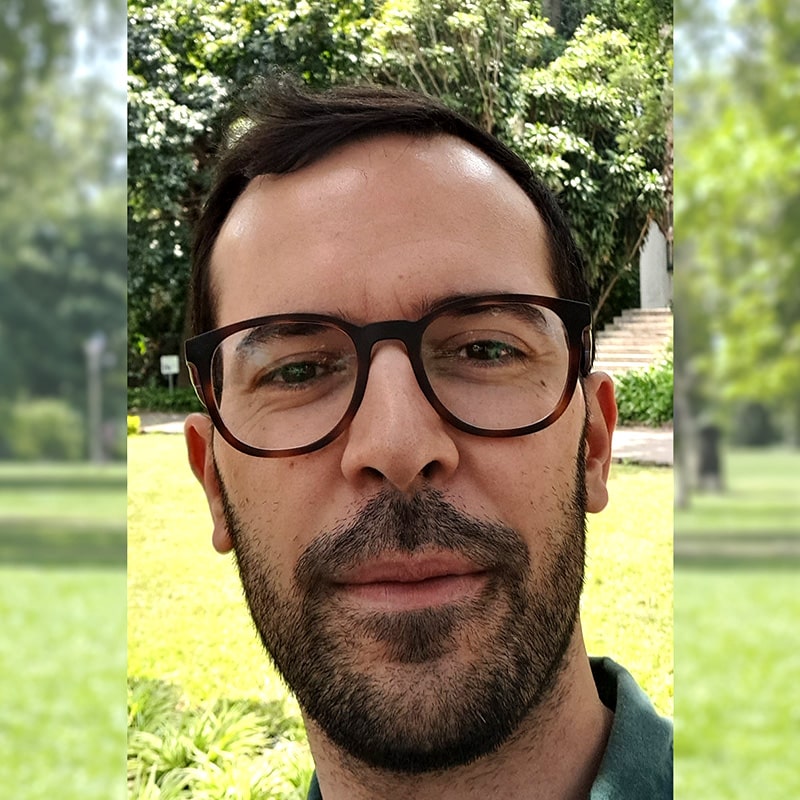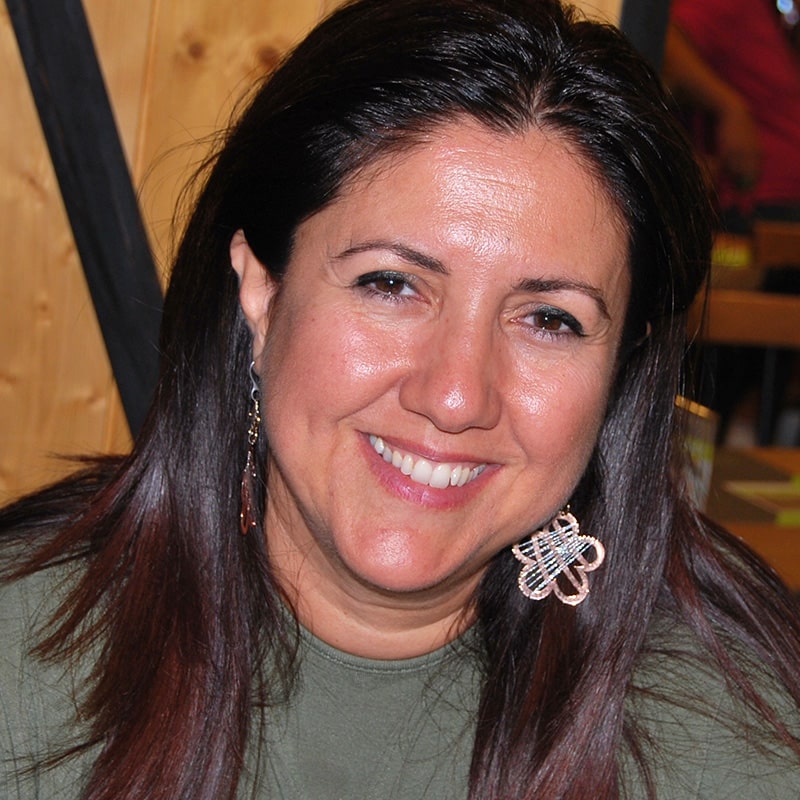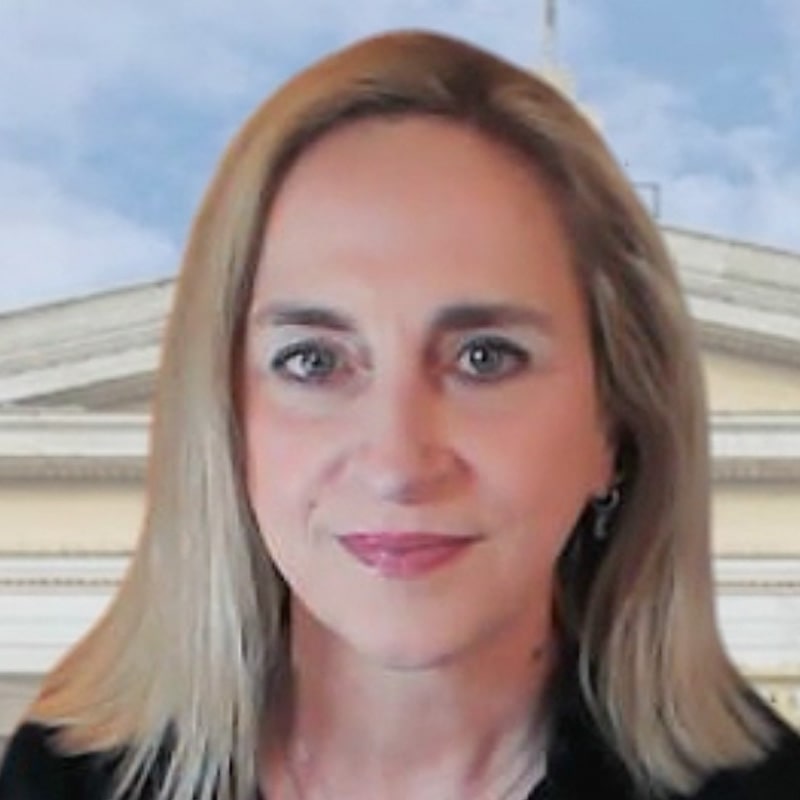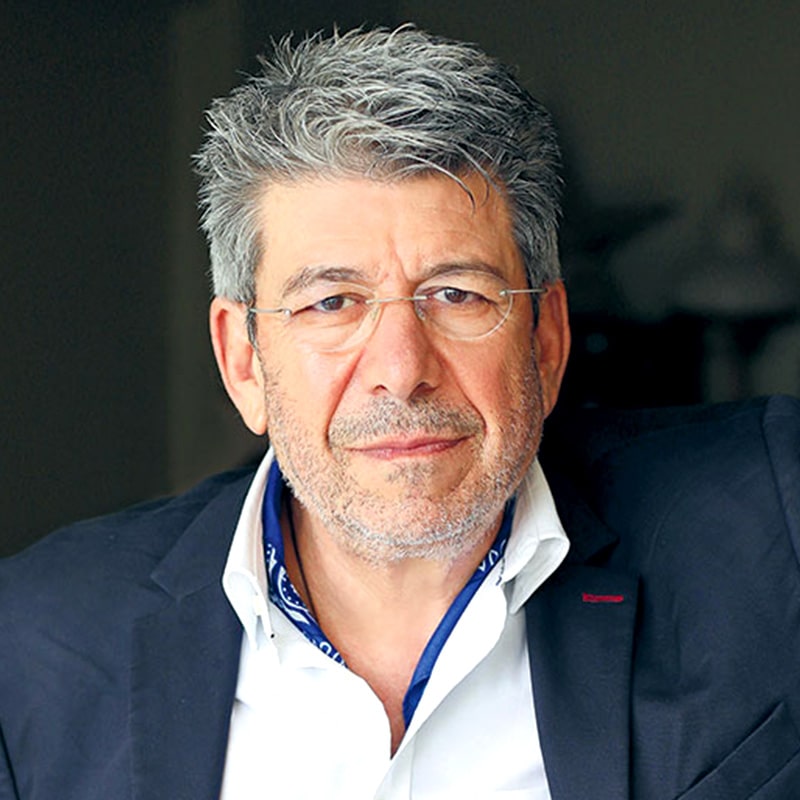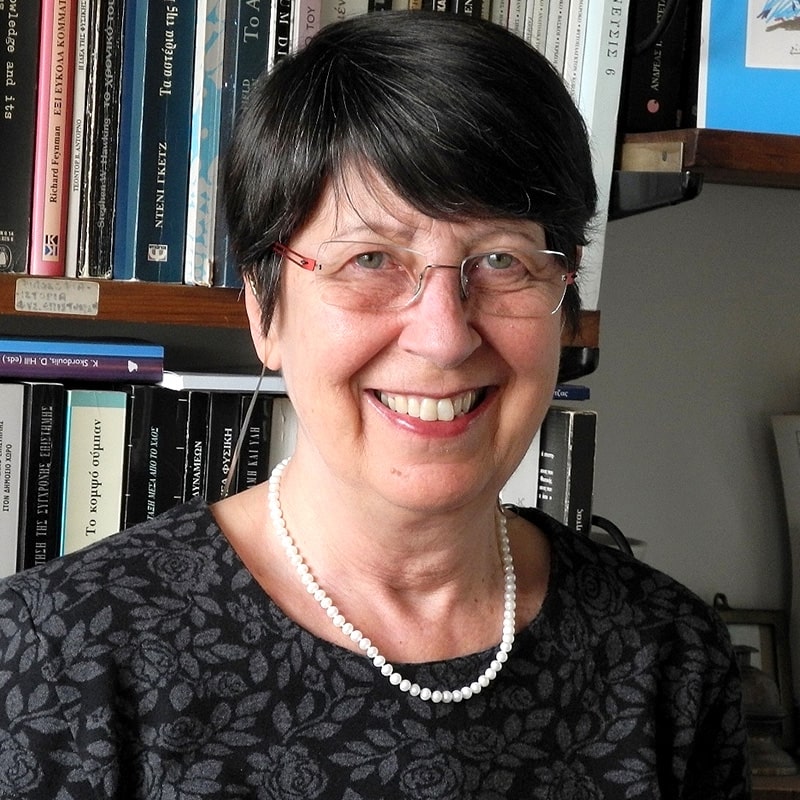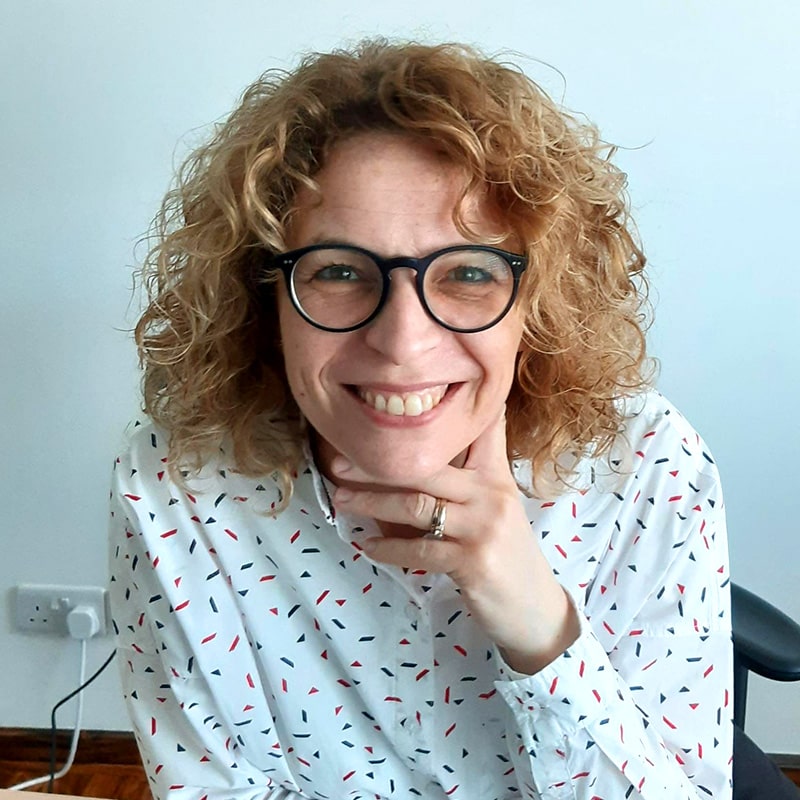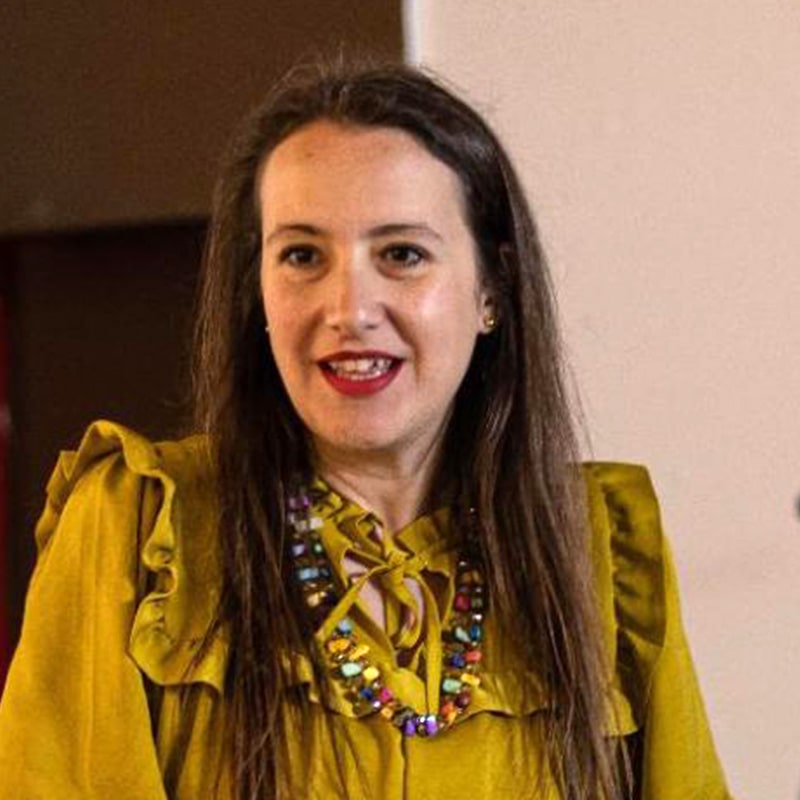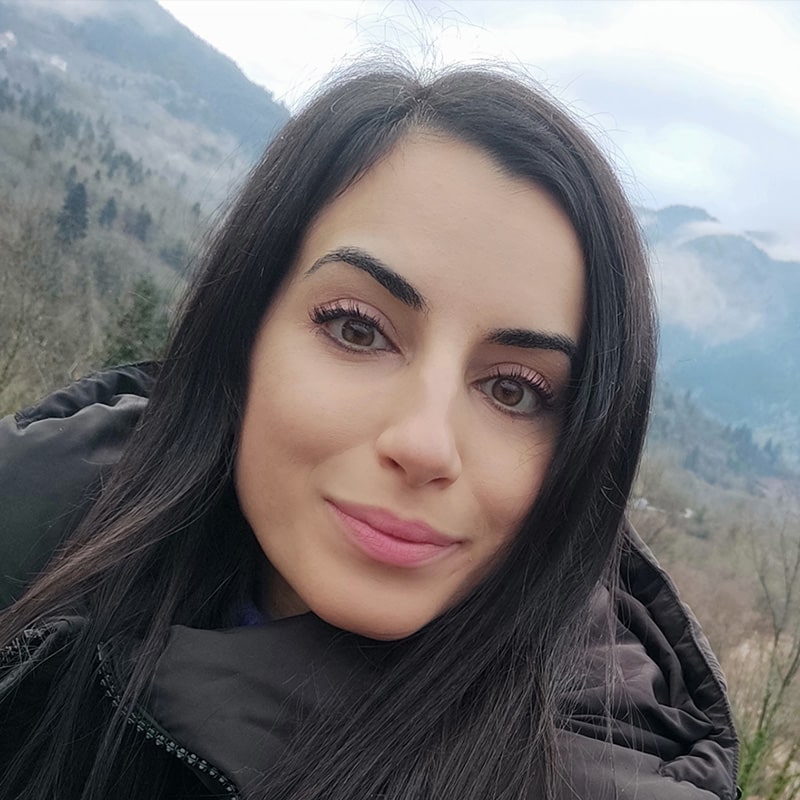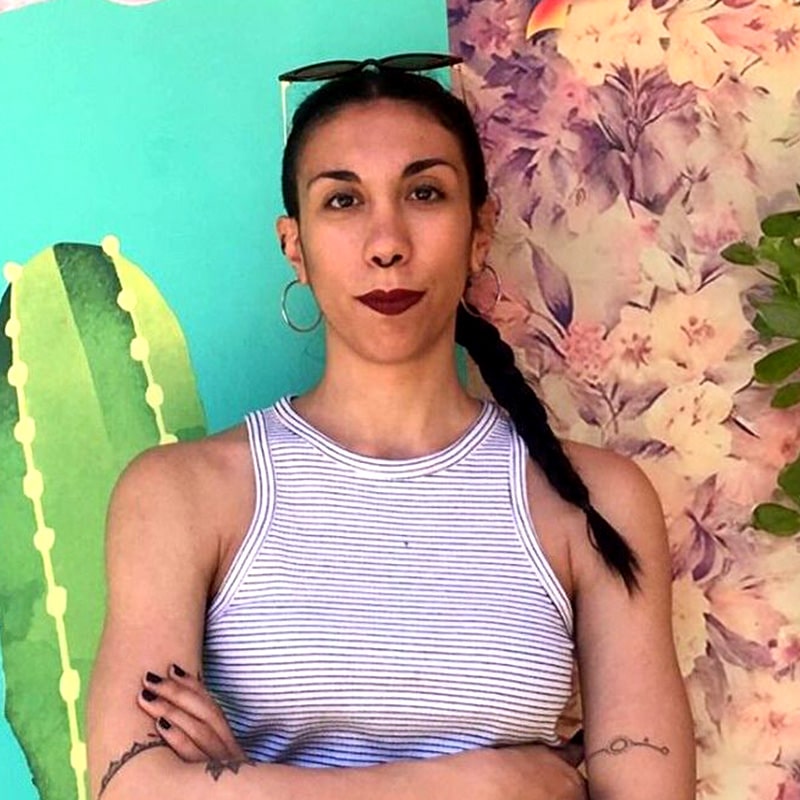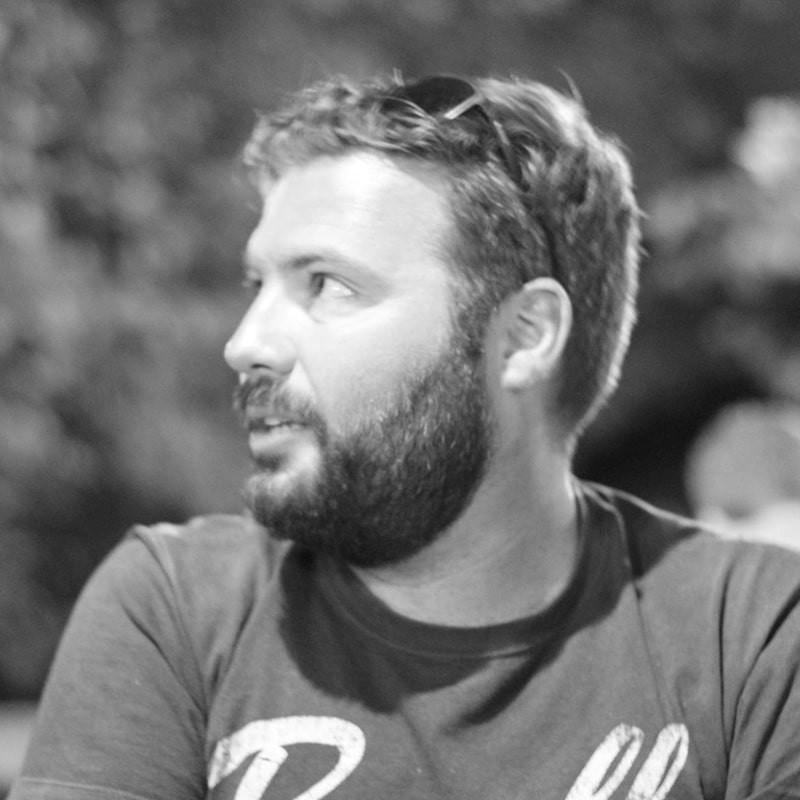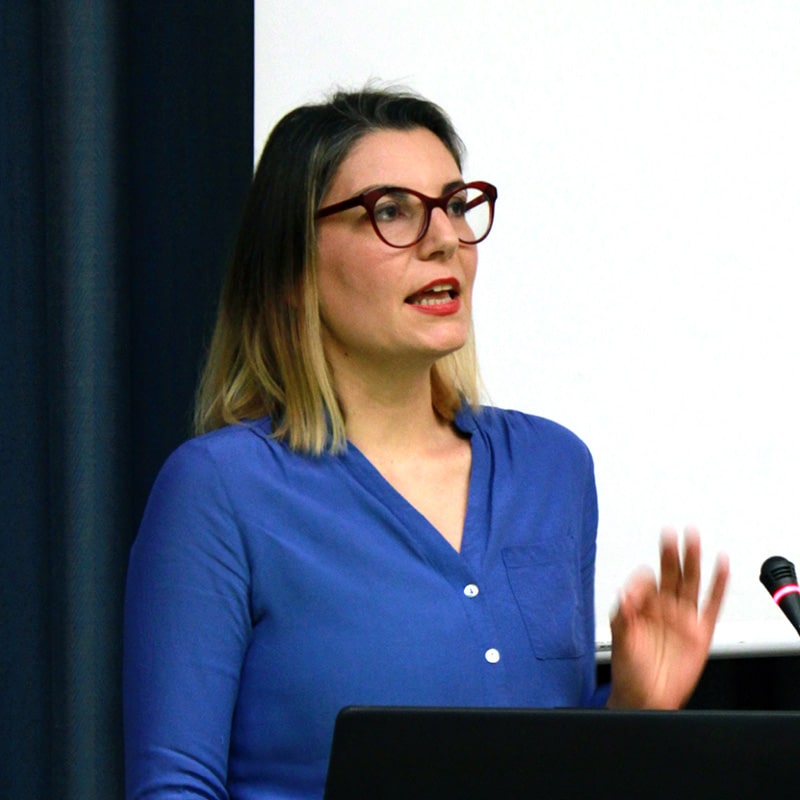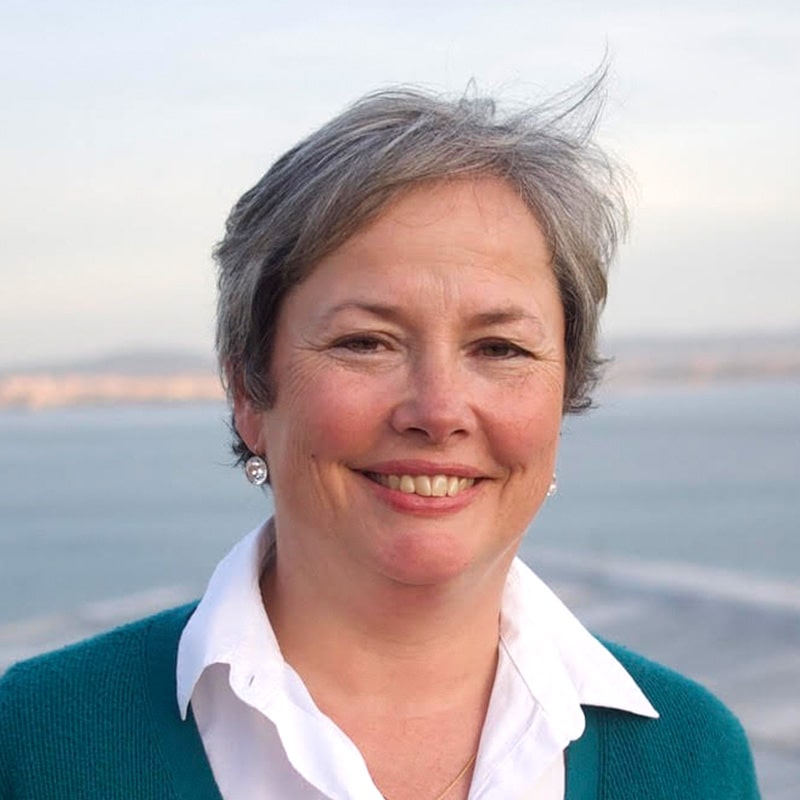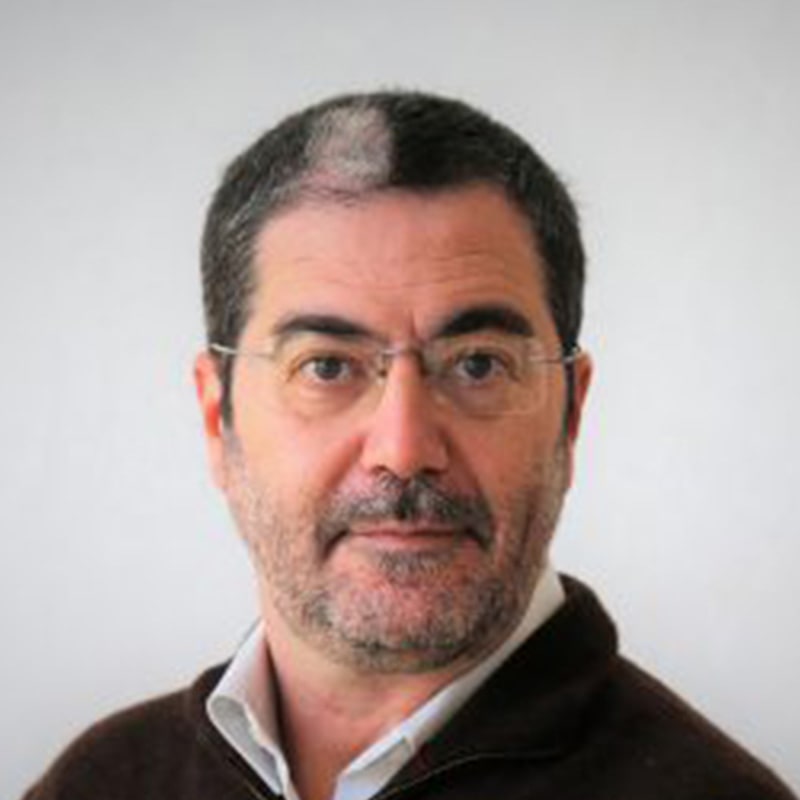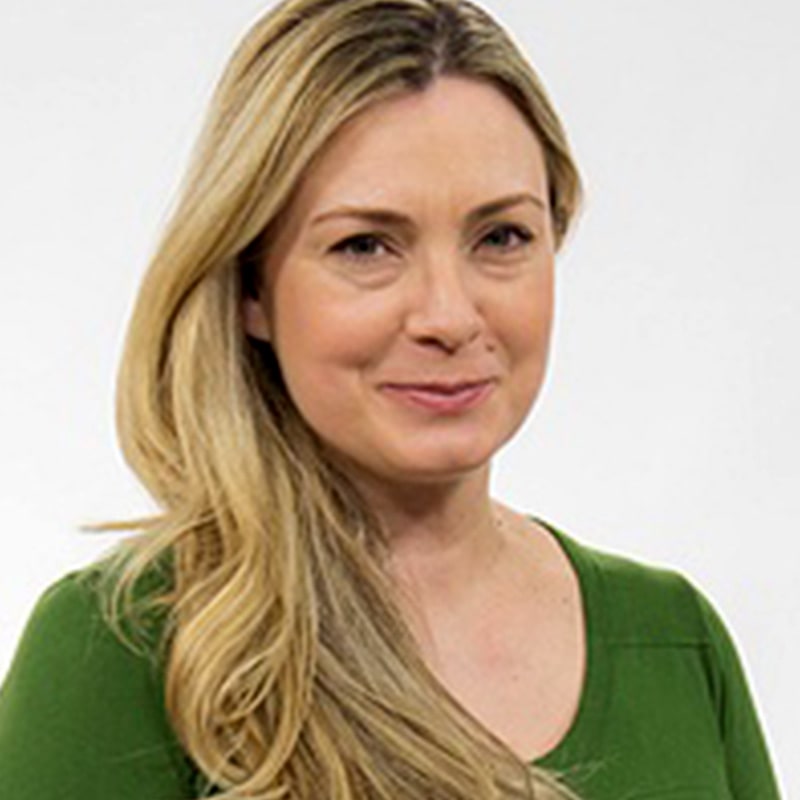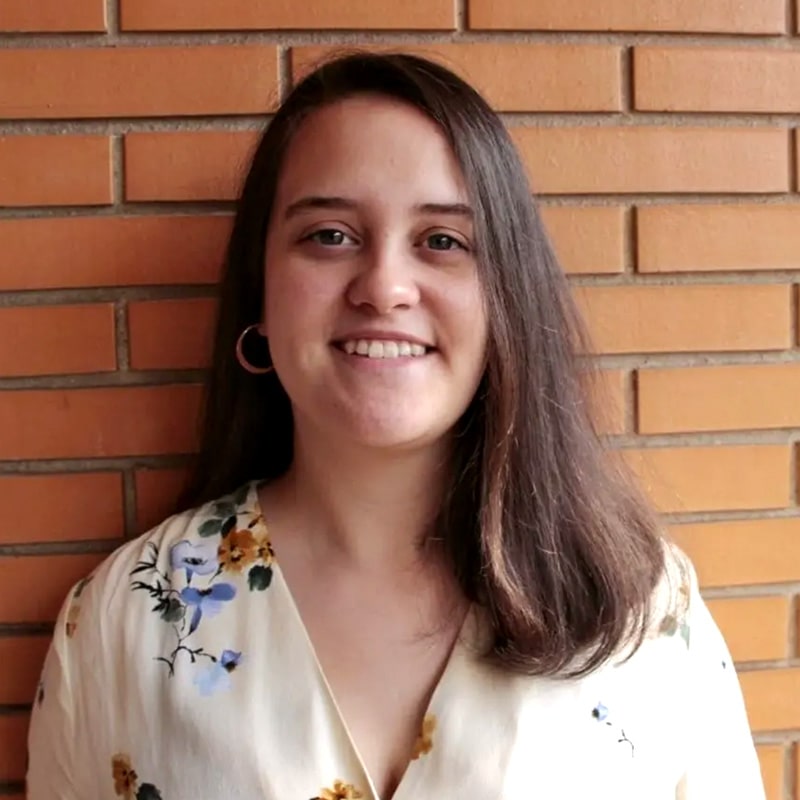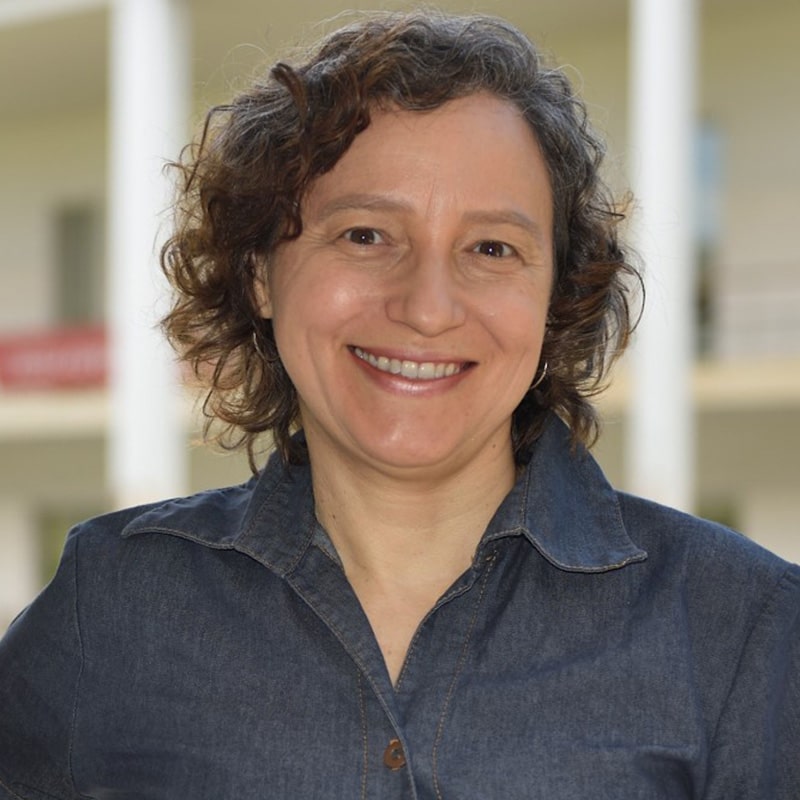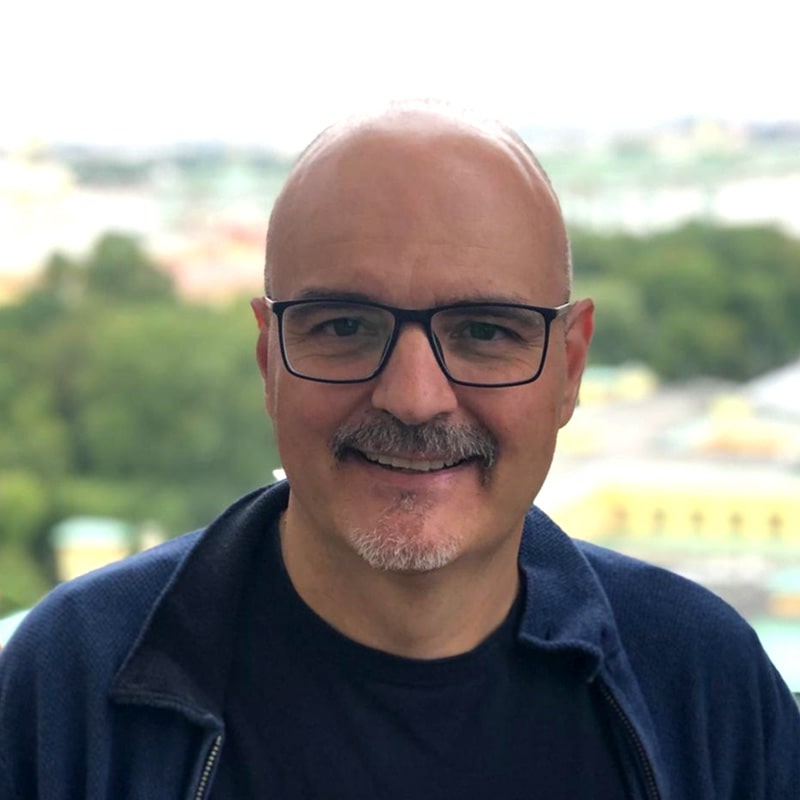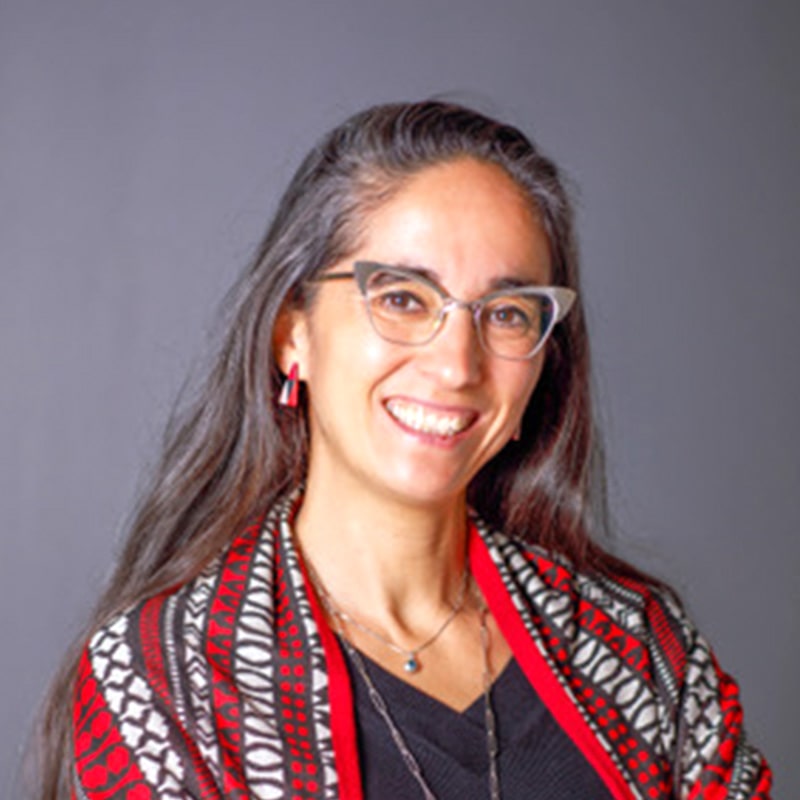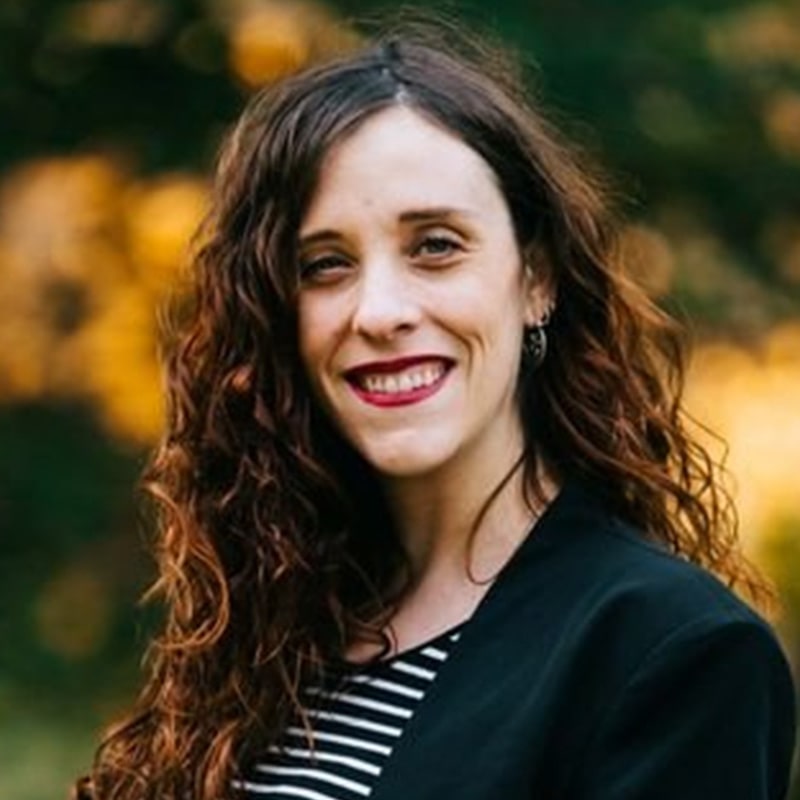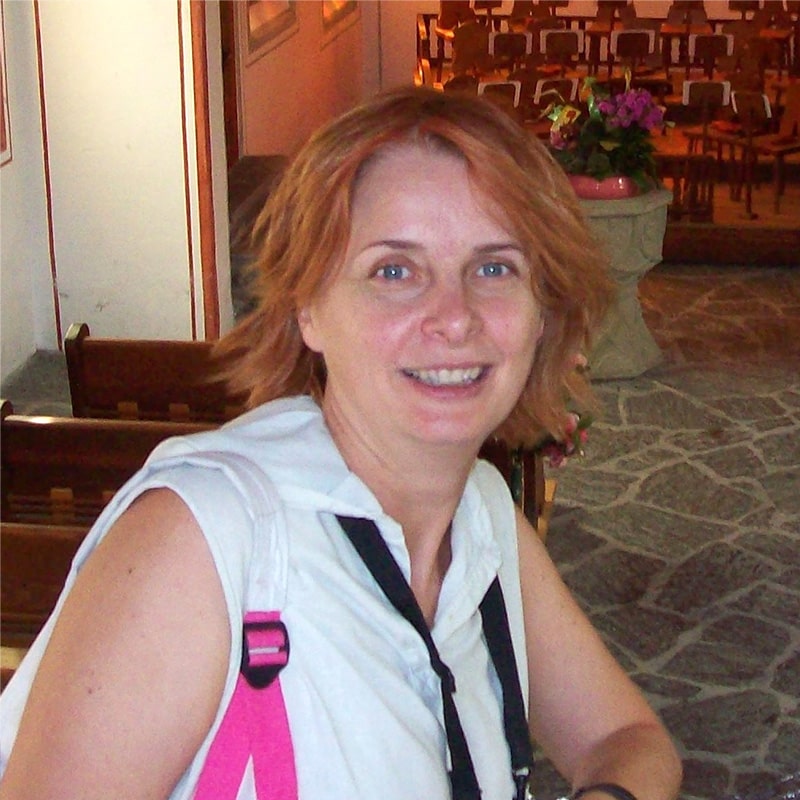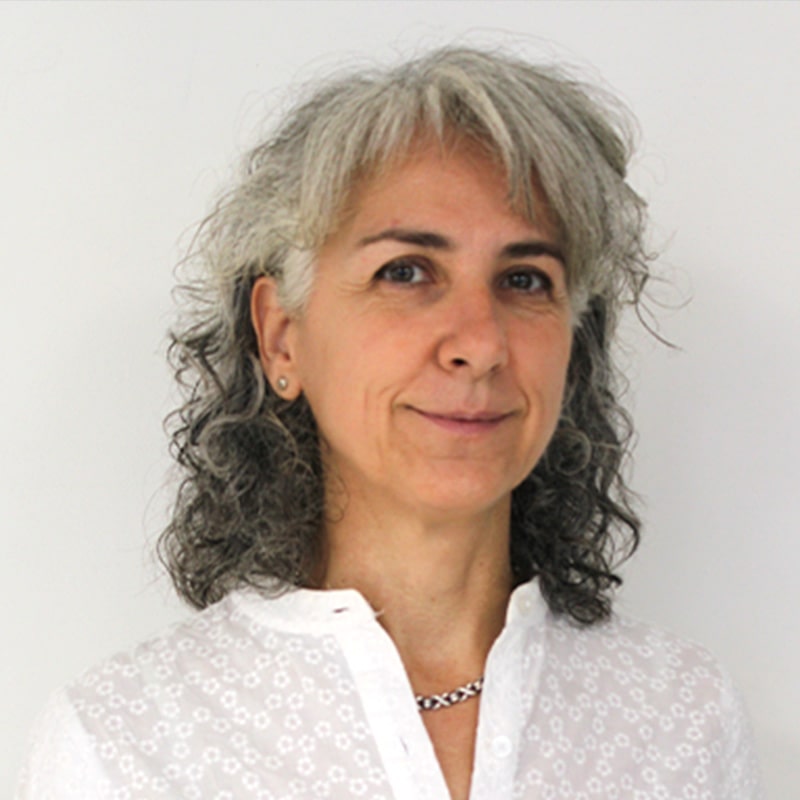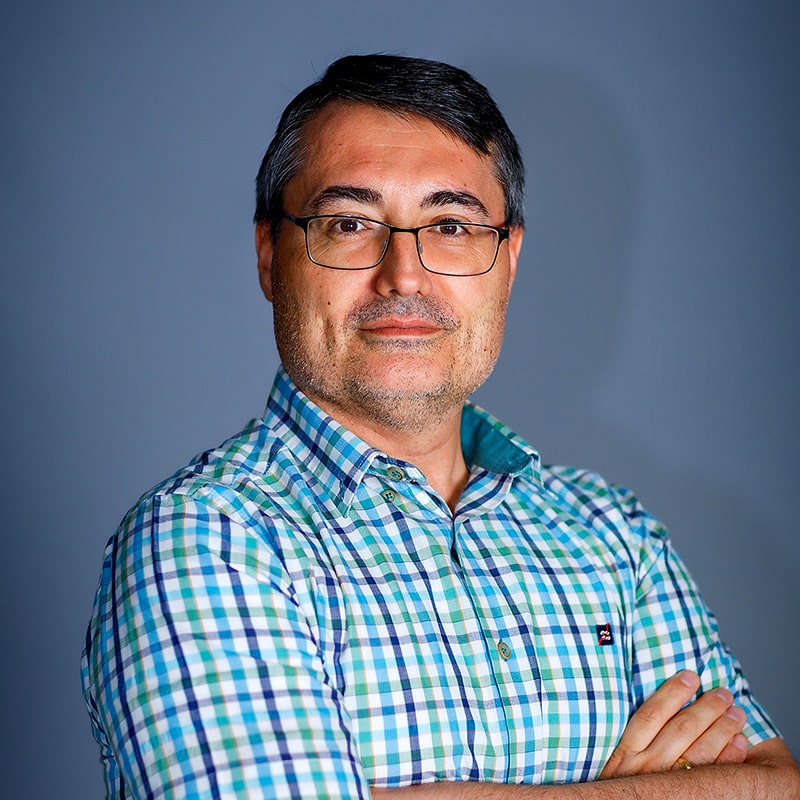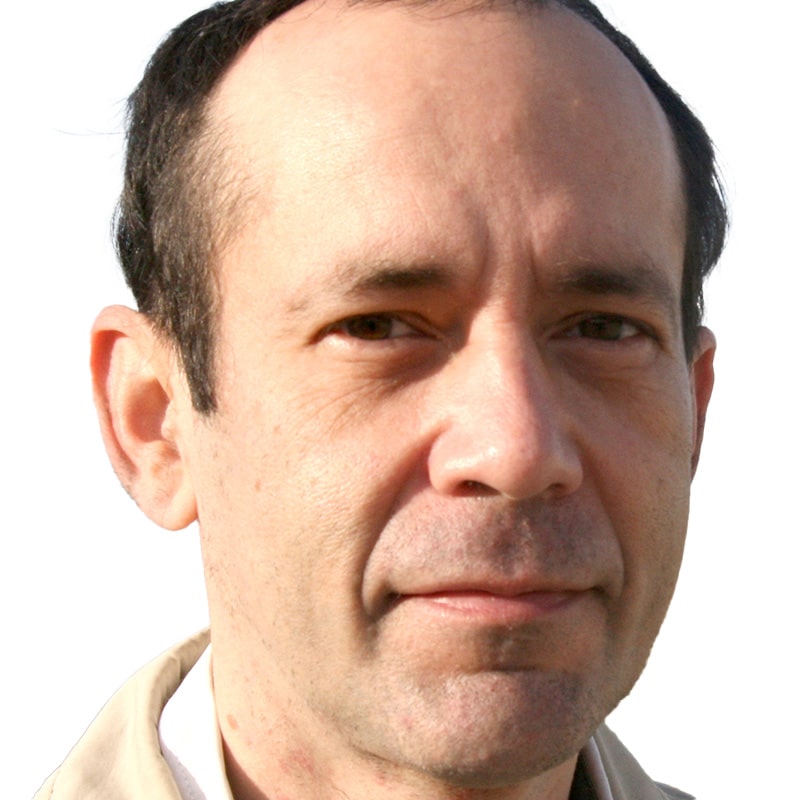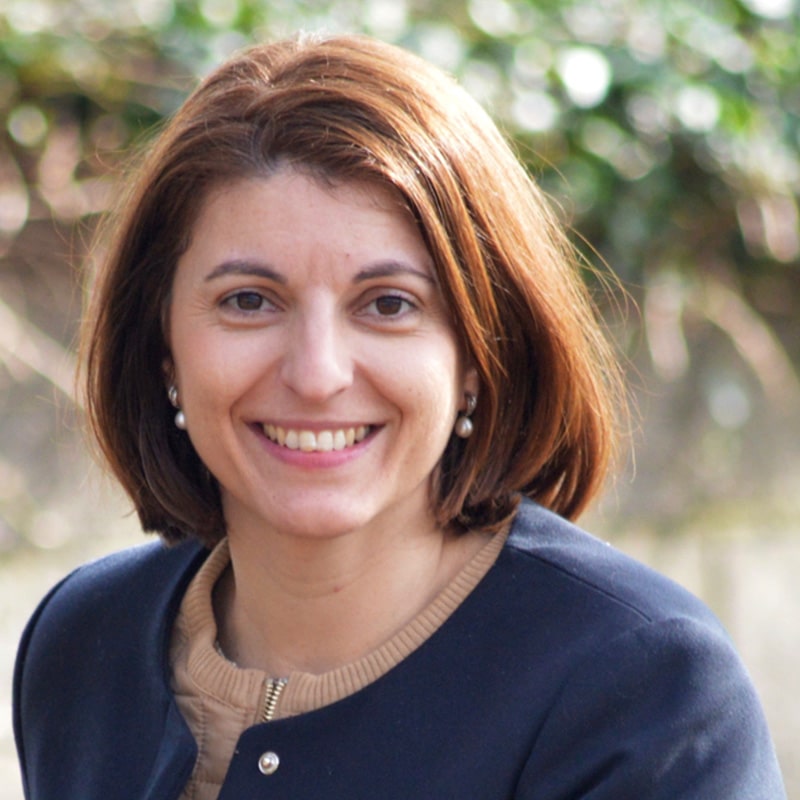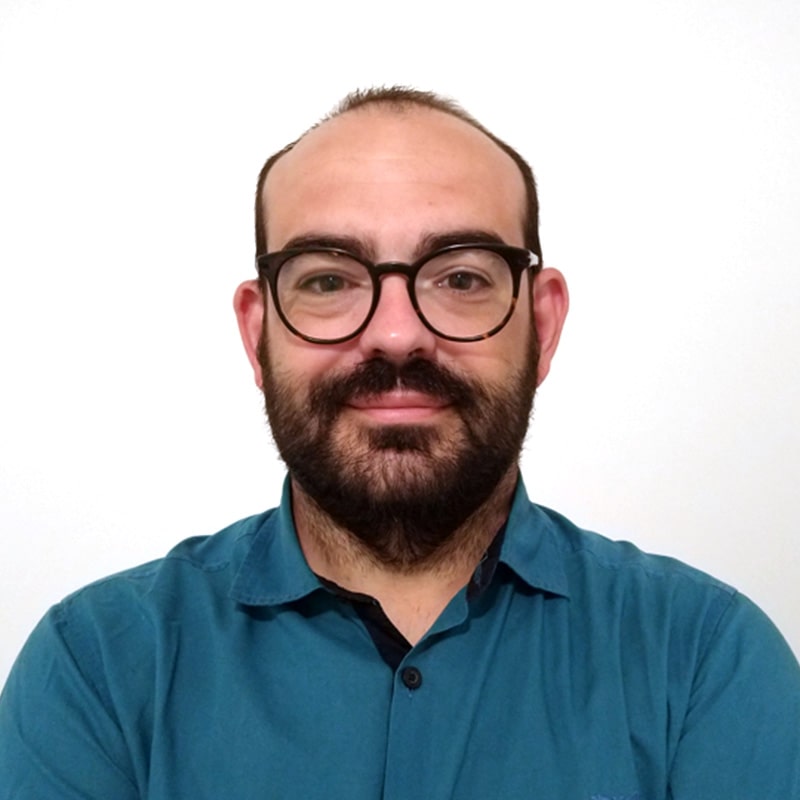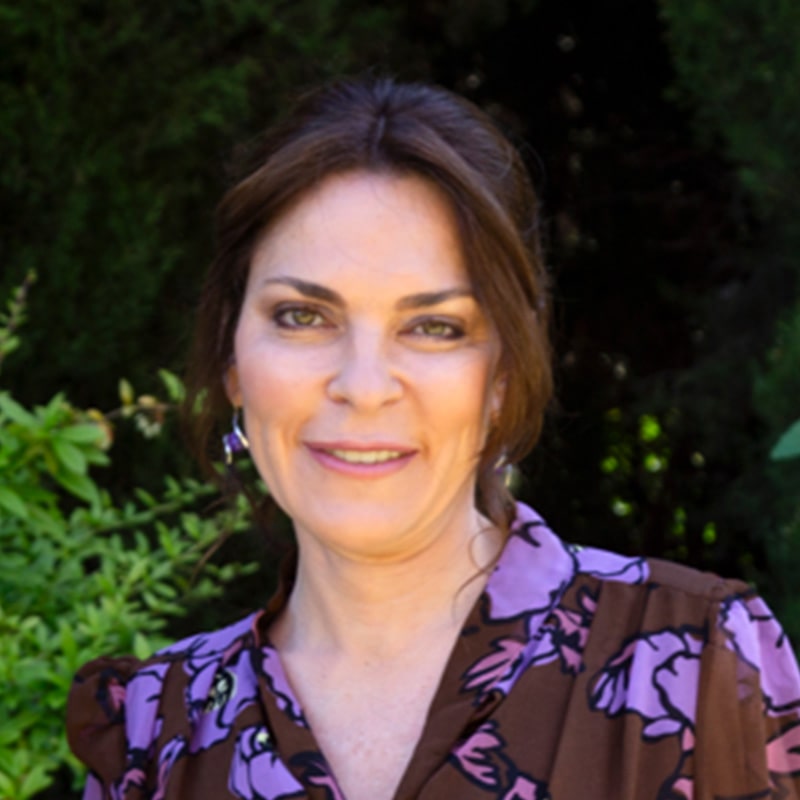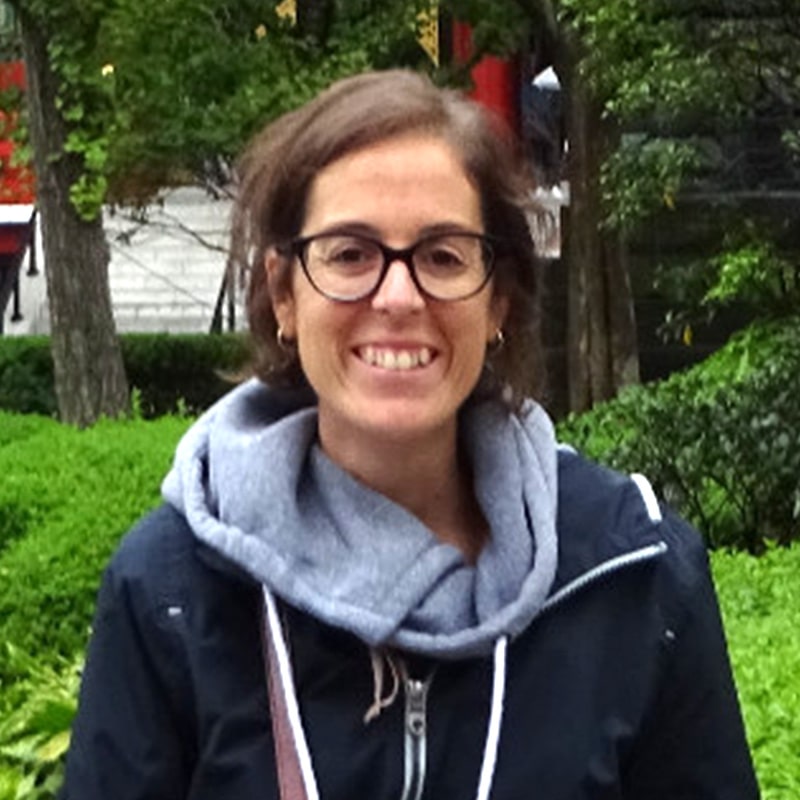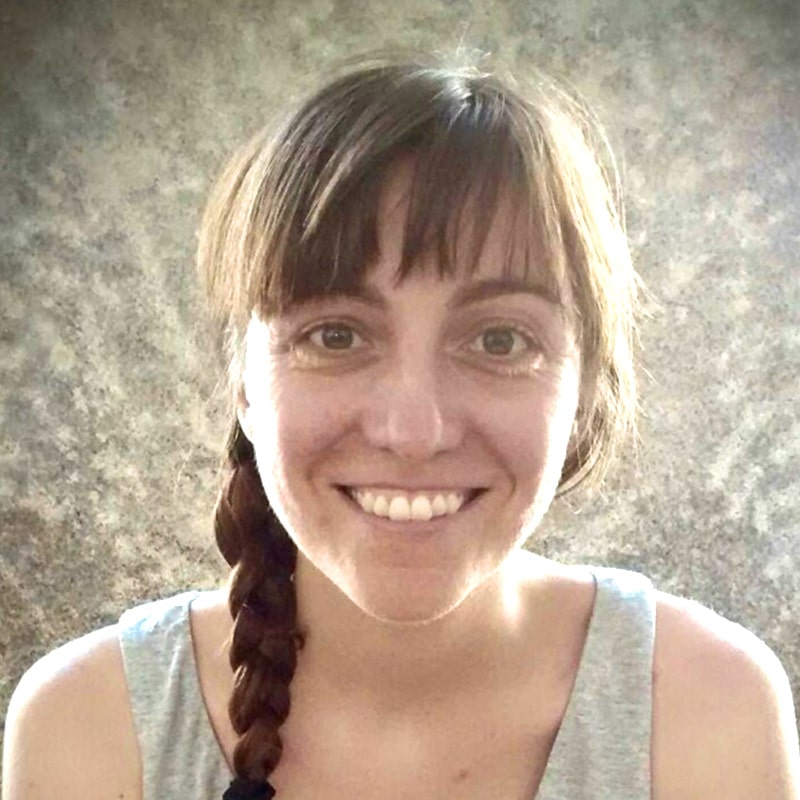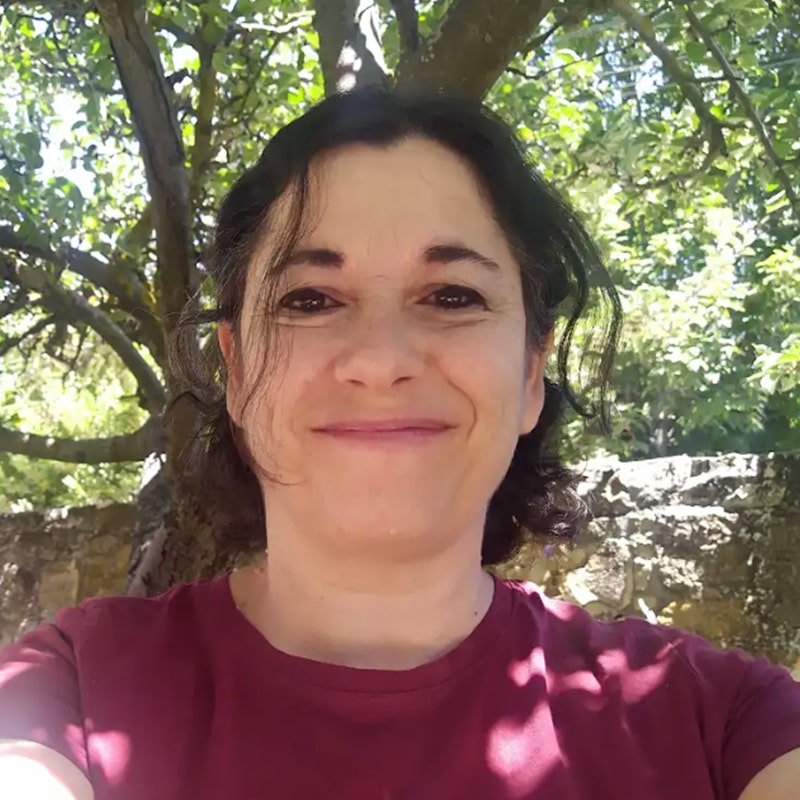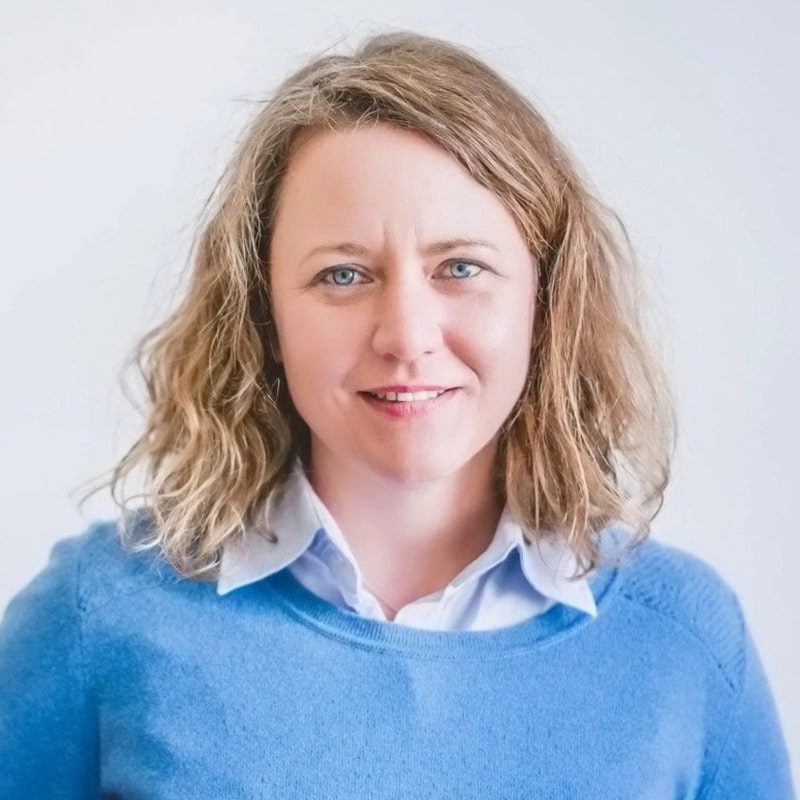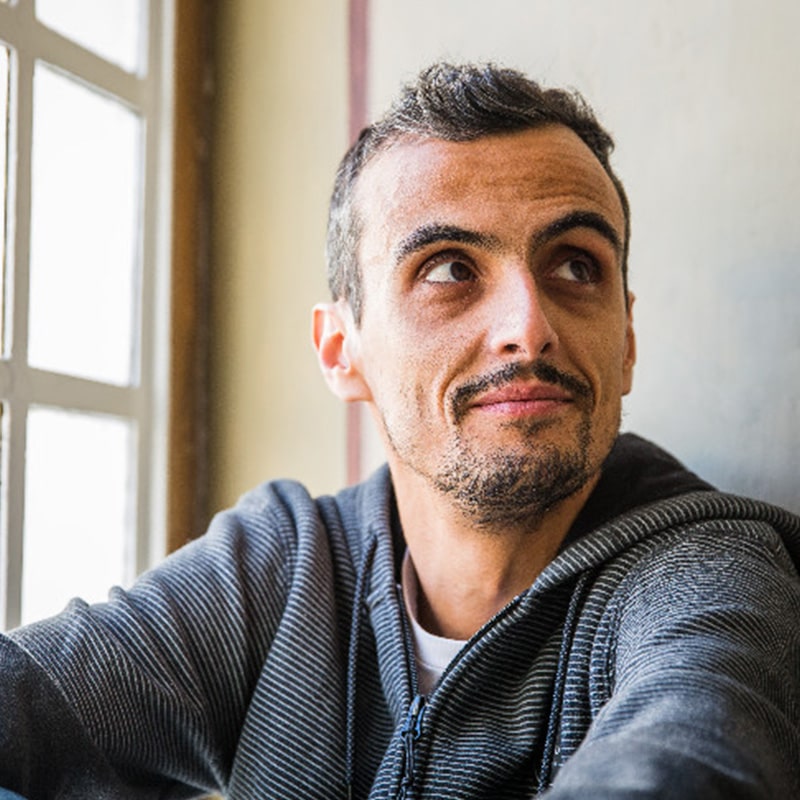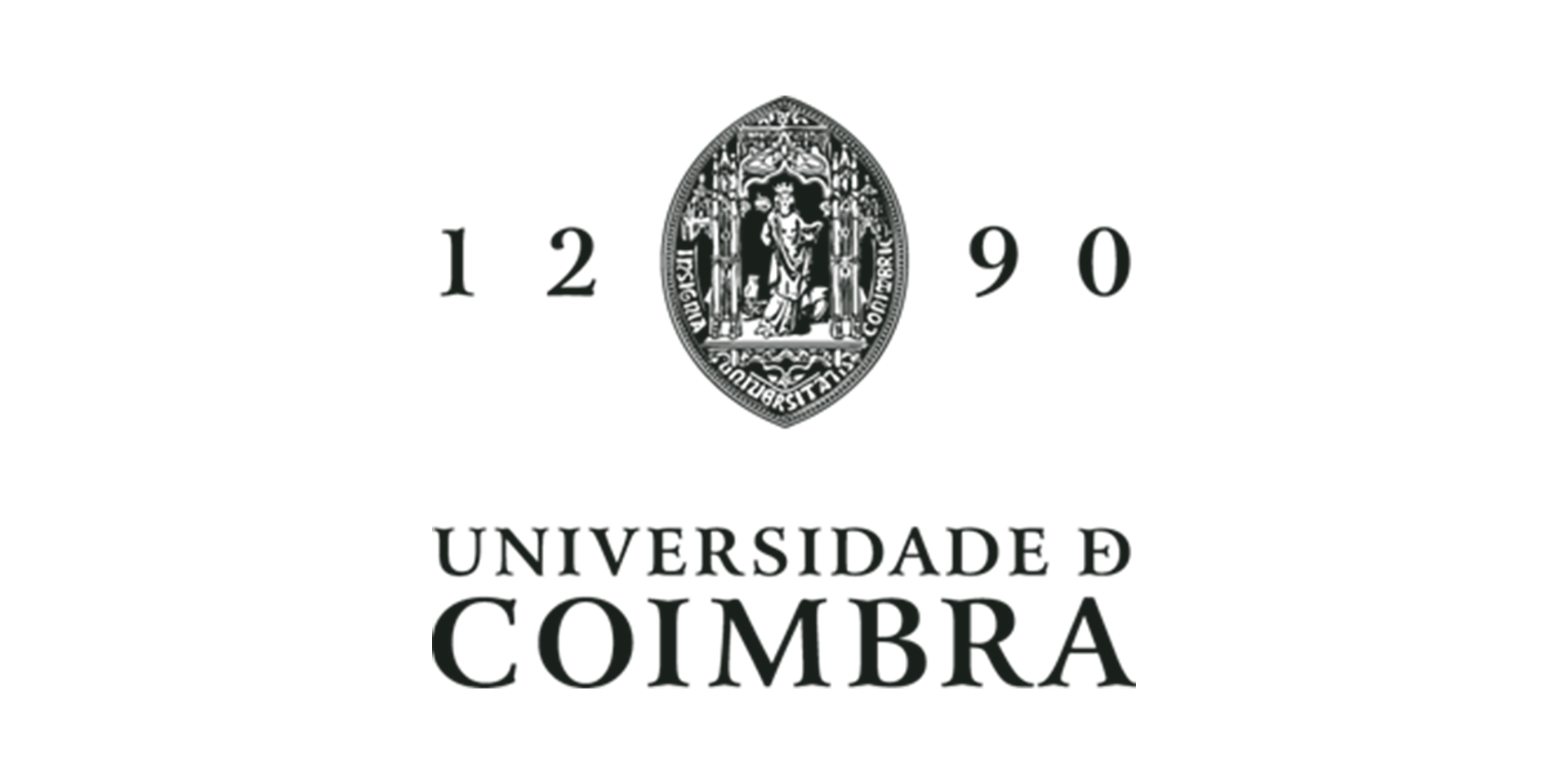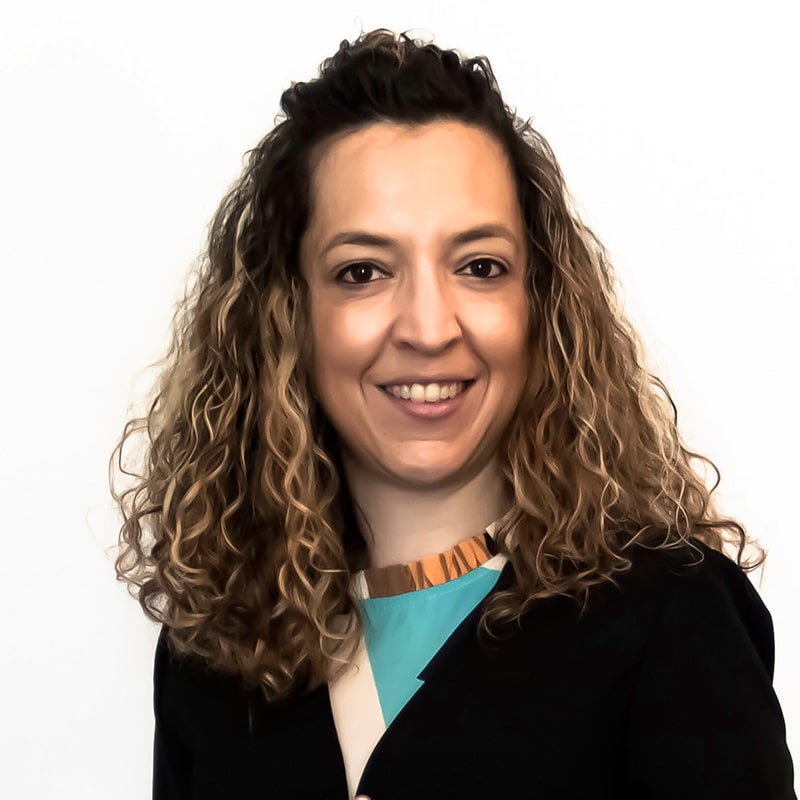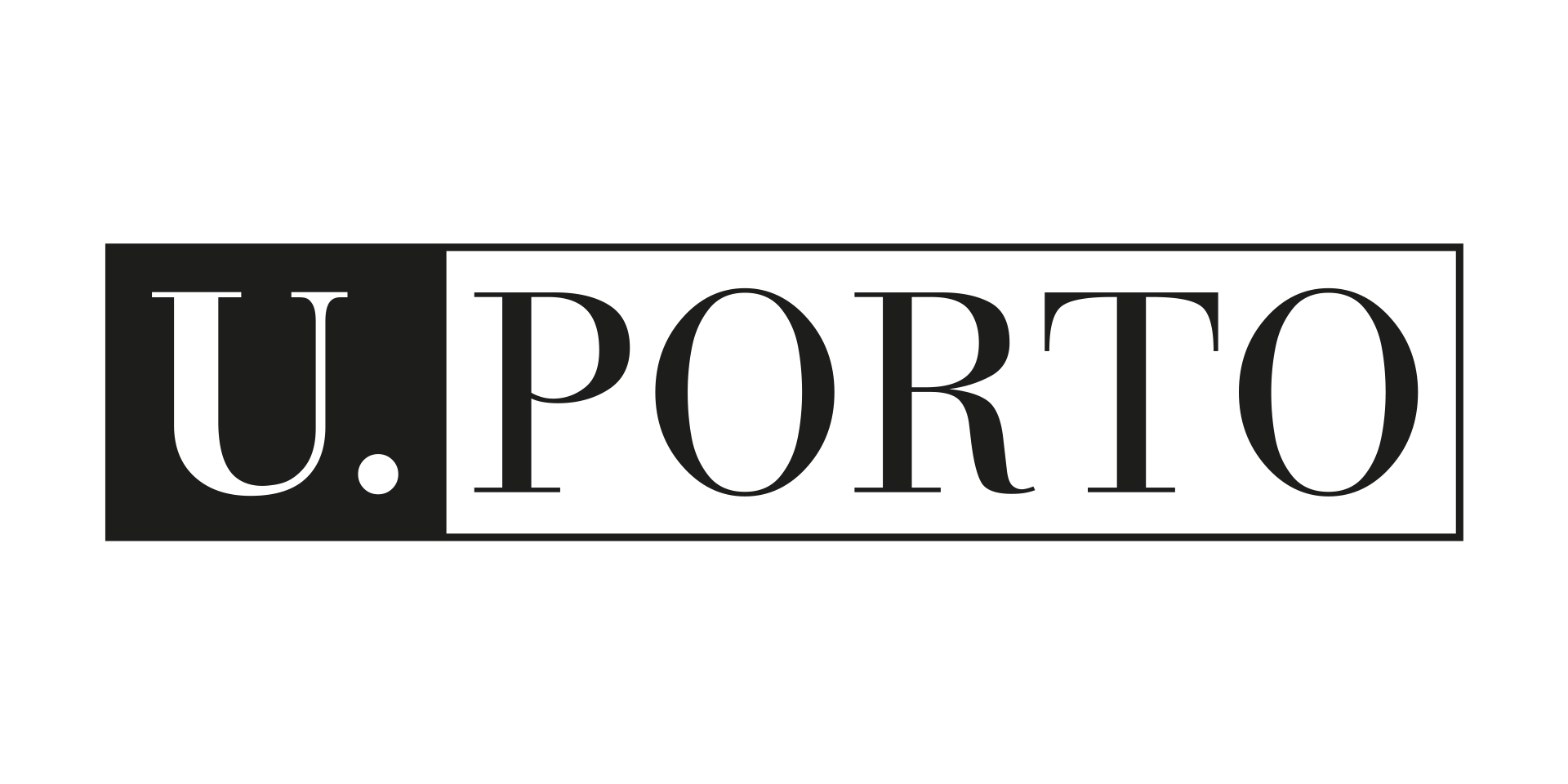Universidade de Aveiro
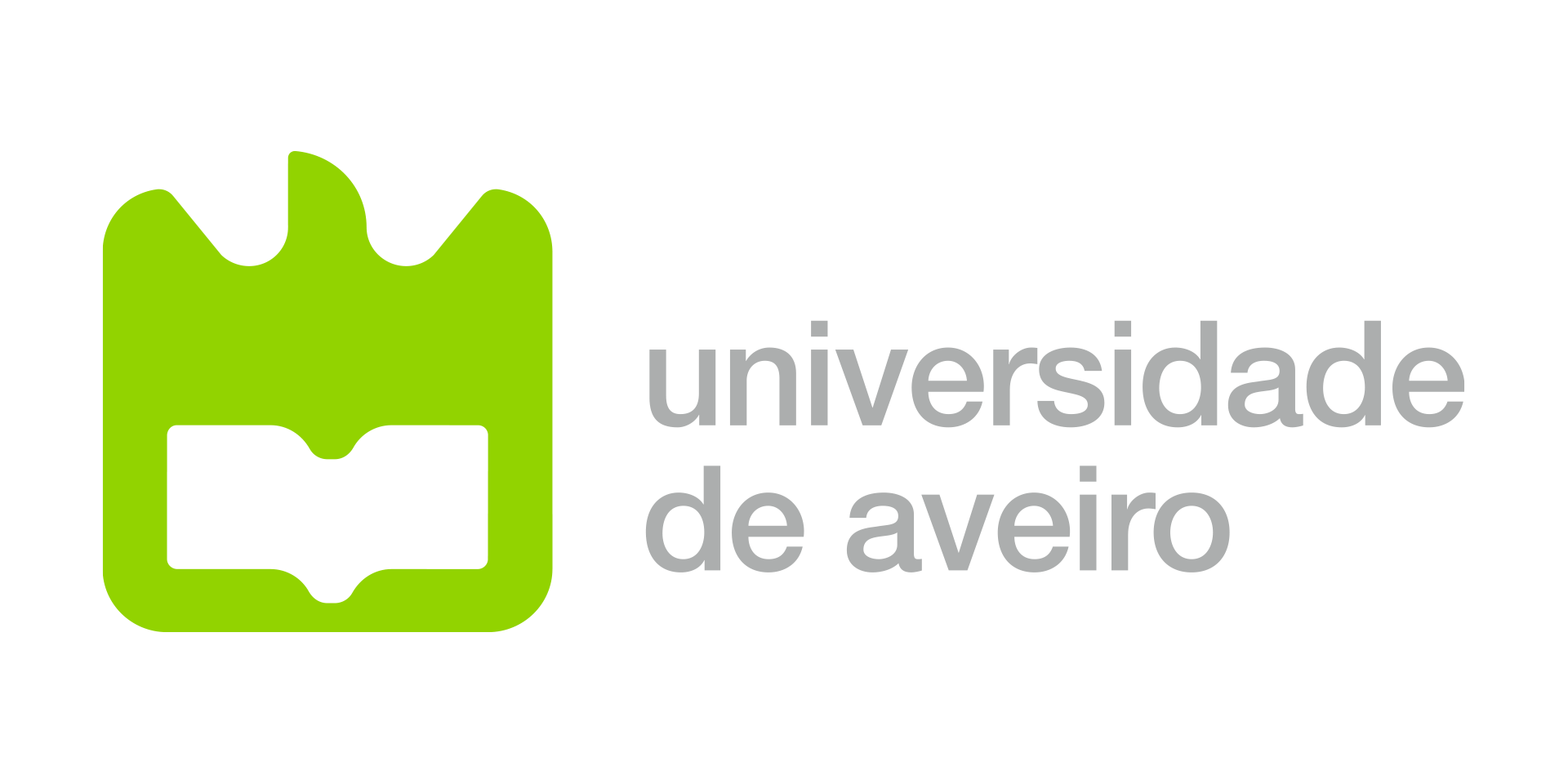
Xana Sá-Pinto
Assistant Researcher at CIDTFF, Department of Education and Psychology, University of Aveiro
I am a biologist passionate about biodiversity, evolution and sustainability. In 2015, after a PhD and a post-doc in evolution, I transitioned to science education research, focusing on evolutionary literacy and education for sustainability. Since then, I have been collaboratively working at transdisciplinary research networks, with academic and non academic stakeholders, to promote sustainable and research-based changes in education. My research interests are related with stakeholders and students’ learning processes in the context of transdisciplinary research projects and open schooling.
Margarida M. Marques
Assistant Researcher at CIDTFF, Department of Education and Psychology, University of Aveiro
I research topics as: i) teacher initial and continuous training, namely through communities of practice; ii) scientific literacy (e.g., climate literacy); and iii) innovation in Science Education, particularly digital game-based learning integrating mobile devices and augmented reality. I have previous experience with projects aiming to promote students’ climate change learning through mass media. Currently, I am a member of several research projects at national and international levels, as the EduCITY (PTDC/CED-EDG/0197/2021, where I am co-coordinator), and OpenUS4ALL (KA220-SCH-8BC19DC4). I also lecture curricular units for master courses and through student supervision at master’s and doctoral levels.
Ana Isabel Dias Daniel
Assistant Researchers at GOVCOPP, Department of Economics, Management, Industrial Engineering and Tourism (DEGEIT)
Ana, currently serving as a Professor of Entrepreneurship at the University of Aveiro, has dedicated the past decade to extensive research in entrepreneurship education and entrepreneurial ecosystems. This commitment has resulted in numerous publications in these domains, accompanied by several entrepreneurship awards recognizing her contributions, particularly in the development of technology-based spin-offs. Additionally, she serves on the Editorial Board of the Journal of Small Business and Enterprise Development and co-founded the International Conference on Entrepreneurship Education. She’s led various national and European-funded projects.
David Carvalho
Assistant Researcher at the University of Aveiro
I’m a meteorologist and climatologist focused on research related to Climate variability and change, Climate simulation and modelling, numerical weather prediction, Renewable energies resource simulation and Numerical weather prediction models. Currently, I am a member of several research projects at national and international levels. I lecture several curricular units for master courses related to atmospheric and climatic sciences, and supervise several students at master and doctoral levels.
José Luís Araújo
Assistant Professor at the University of Aveiro
José Luís Araújo is an Assistant Professor at the University of Aveiro. He currently coordinates the master’s programme for the initial training of Physics and Chemistry teachers. He has co-authored numerous publications, including journal articles, books, and book chapters, as well as presentations at national and international conferences and meetings. He has been actively involved in various teacher training projects and courses for both pre-service and in-service teachers in Portugal. His research focuses on Physics and Chemistry Education, particularly the pedagogical potential of Citizen Science and the recent integration of Artificial Intelligence in teaching practices within these disciplines.
Cercle FSER
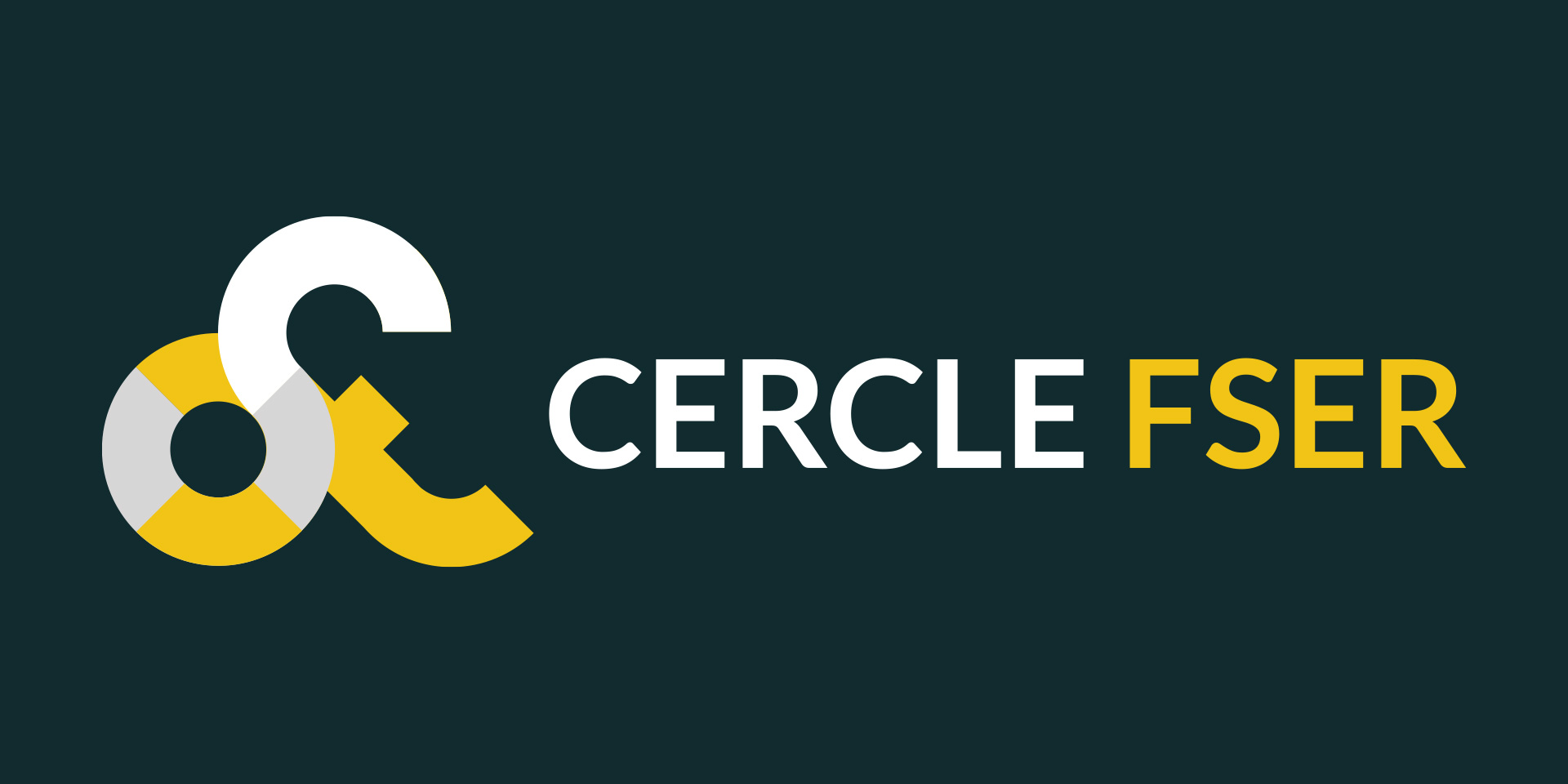
NKUA
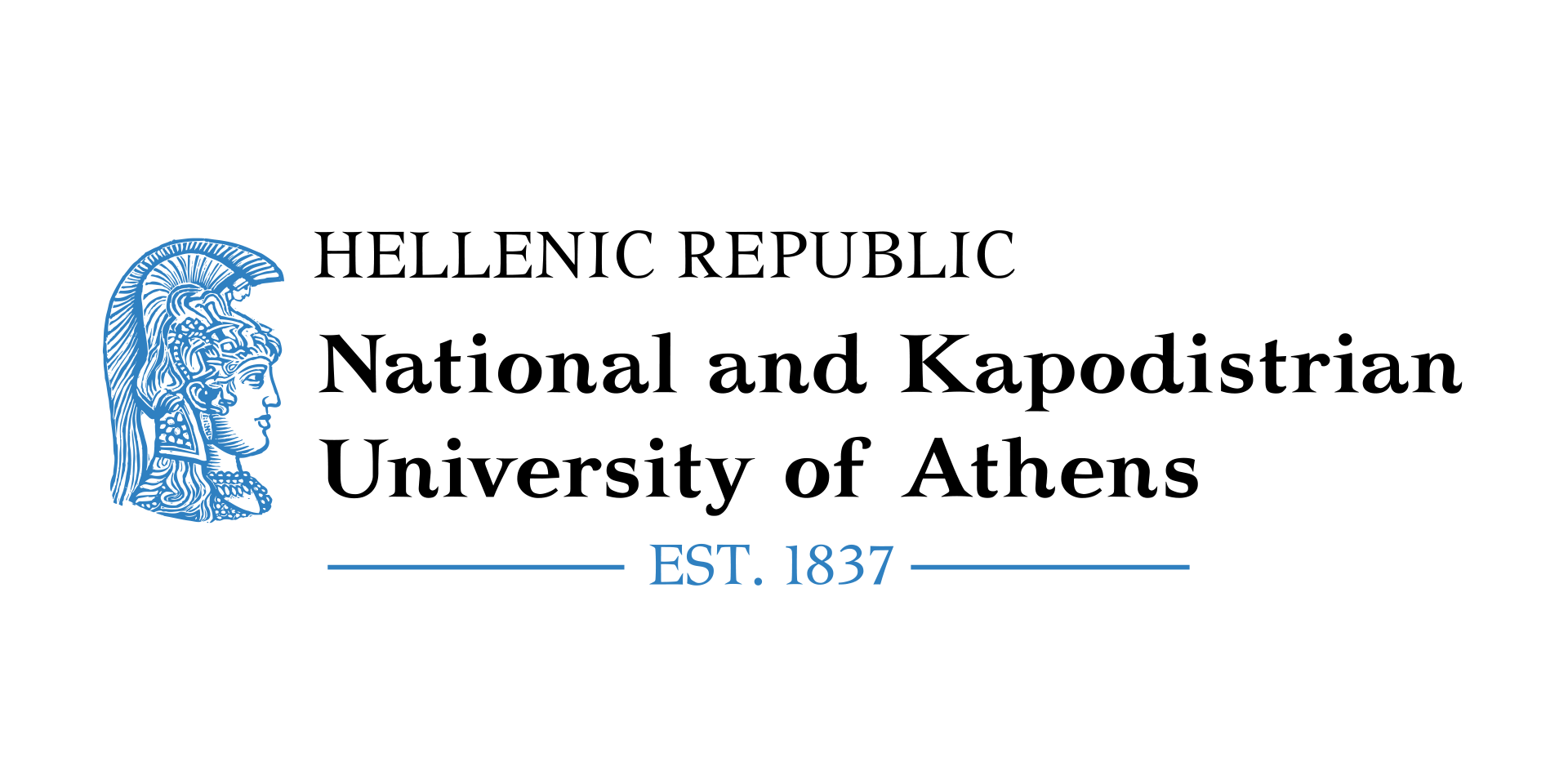
Evangelia Mavrikaki
Professor, Department of Pedagogy and Primary Education, School of Education, National and Kapodistrian University of Athens
I hold a PhD in biology and I am a Professor of Biology and Health Education, a member of the Laboratory of Science Teaching & Epistemology and Educational Technology of the Department of Pedagogy and Primary Education of the National and Kapodistrian University of Athens, Greece, as also the director of the Postgraduate Program “Didactics and Public Understanding of Science and Digital Technologies” and the Research Institute “Environment, Climate Change and Quality of Life: Education and Research». I have worked as an academic (Lecturer and Assistant Professor) in the Aristotle University of Thessaloniki and the University of Western Macedonia before my current position.
Apostolia Galani
Professor, Department of Pedagogy and Primary Education, School of Education, National and Kapodistrian University of Athens
I am an associate professor in the DPPE of NKUA and an expert in Pedagogy and Geography Education. I am also the author of the official school textbooks for Geography in lower secondary education from 2007 to today. My research interests focus on climate change, its results, and its communication to different groups of students. I am an active member of the Research Institute “Environment, Climate Change and Quality of Life: Research and Education.”
George Pleios
Professor at the Department of Communication & Media Studies, National and Kapodistrian University of Athens
Professor in NKUA and board Member of the Refugee and Migration Studies HUB and Coordinator of the Jean Monet Module “ReVive”: The Future of Displaced People under the EU auspices in the Post Pandemic Era – Lessons learned and new challenges. Prior he has worked at the University of Crete and the University of Ioannina. Since 2003, he is Director of the Laboratory for Social Research in Mass Media. He taught also in China, Hungary, Ukraine, Cyprus, Bulgaria, Portugal, Turkey, Malaysia and other Greek Universities. Author, coauthor and editor of 10 books, 32 chapters, 50 articles published in Greece and internationally (UK, USA, Spain, Portugal, Bulgaria, Romania, China, Australia, Turkey), PI in 37 research projects. Former member of the Supervisory Board of the ECPMF (2015 – 2017) and the National Council for Radio and Television of Greece (2016 – 2023), Vice Coordinator of the Research Network 18 (Media Sociology) of the European Sociological Association (2011 – 2014), Vice- President (2016 – 2018) and President (2018 – 2020) of the Hellenic Sociological Society (HSS). His recent publications focus on news, fake news, war reporting, media and referendums.
Krystallia Halkia
Professor Emeritus of Science Education, School of Education, National and Kapodistrian University of Athens
I have been teaching for several years Science Education and Astronomy Education in undergraduate and postgraduate courses at the University of Athens, and I’m still teaching issues of Science Education at a postgraduate level. I also have substantial experience in teachers’ training and in adults’ education. My main research interests are: a) the design of teaching-learning sequences on several areas of science and astronomy, b) the use of informal sources in science education and c) the design of science literacy curricula in Second Chance Schools. I have participated in several EU and national projects, and I have published more than 200 papers on science education in international and national refereed journals and conference proceedings.
Constantina Stefanidou
Laboratory Teaching Staff, Department of Education, NKUA
I am a physicist who has a PhD in Science Education from NKUA. After a long period of teaching science in secondary education, since 2017 I have a position in the Department of Education at NKUA in the field of Didactics of Science. My research and publications focus on formal and informal science education, with an emphasis on historical and social perspectives, nature of science, STEM education, and inquiry based teaching and learning. I participate in international conferences and science communication actions. I am a member of the European Science Education Research Association (ESERA) and the International History Philosophy and Science Teaching (IHPST) Group.
Nausica Kapsala
Biology teacher at 11th Lyceum of Peristeri, external partner of the Department of Education, NKUA
I am a biologist and a storyteller and I hold a PhD in Didactics of Biology. My post-graduate studies focus on biology teaching and new technologies, and my PhD thesis is about “Storytelling as an educational tool in biology teaching”, focusing on stories derived from the History of Science. I teach Biology at the lyceum and “Science outside the classroom” as a contracted lecturer in the Master’s Program «Science in Education» at the Department of Education, NKUA. My research interests are about formal and informal teaching and public understanding of biology aspects, such as evolution, climate change, e.t.c. and Nature of Science.
Athina Karatza
Ph.D. student in Geography Education, Department of Pedagogy and Primary Education, National and Kapodistrian University of Athens, teacher in Primary Education
I am a Ph.D. student in Geography Education, a teacher in Primary Education and I hold a Master’s Degree in Science in Education. I have contributed as a researcher to a project concerning European Critical Heritages and their enhancement through New Technologies. My research interests lie in geographical literacy, particularly concerning identities and heritage and how discourse is implemented to discuss these issues. I am also interested in education on contemporary socio-scientific topics, such as climate change.
Myrto Koutra-Iliopoulou
PhD. Candidate, Department of Education, NKUA
I am a PhD candidate in the Department of Pedagogy and Primary Education of NKUA. I got my bachelor’s degree in Biology from the Aristotle University of Thessaloniki. Additionally, I hold a master’s degree in Ecology and Biodiversity Conservation. I am currently developing training courses for primary school teachers and ready-to-use educational material for primary students about the 17SDG’s of the United Nations through Social and Emotional Learning.
Asimakis Talamagas
PhD student in Pseudoscience and Education, Dpt of Pedagogy and Primary Education, N.K.U.A, Biology teacher Secondary education
My long experience as a Biology teacher has granted me the opportunity of combining the passion about biology and science in general alongside the interaction with young people. I hold a B.Sc. in Biology (N.K.U.A) and a M.Ed. from the same Dpt.As a member of the Scouts of Greece I have gained significant experience on non- formal education and team management. My main research area is on Pseudoscience and how education confronts “weird” beliefs. In the post-pandemic era Pseudoscience alongside Conspiracy theories will be dealt through understanding Nature of Science and effective Science Communication. Paths that I focus on my research both at a theoretical and practical level.
Eirini Chatzara
Ph.D. student in Public Understanding of the Climate Crisis, Department of Pedagogy and Primary Education, National and Kapodistrian University of Athens, teacher in Primary Education
As a physicist, researcher and educator, I am passionate about enhancing public understanding of the climate crisis. My PhD research at the National & Kapodistrian University of Athens focuses on the efficacy of scientific communication on climate change through education, mass media, and pop culture. With degrees in Physics and Pedagogy, I combine my expertise to address critical environmental challenges. Whether teaching, engaging with the public, or working in edtech R&D, I strive to create impactful STEM education initiatives. I believe it is a scientist’s side quest to effectively communicate, combating misinformation and ensuring accurate scientific knowledge is engaging and accessible.
Universidade Nova de Lisboa
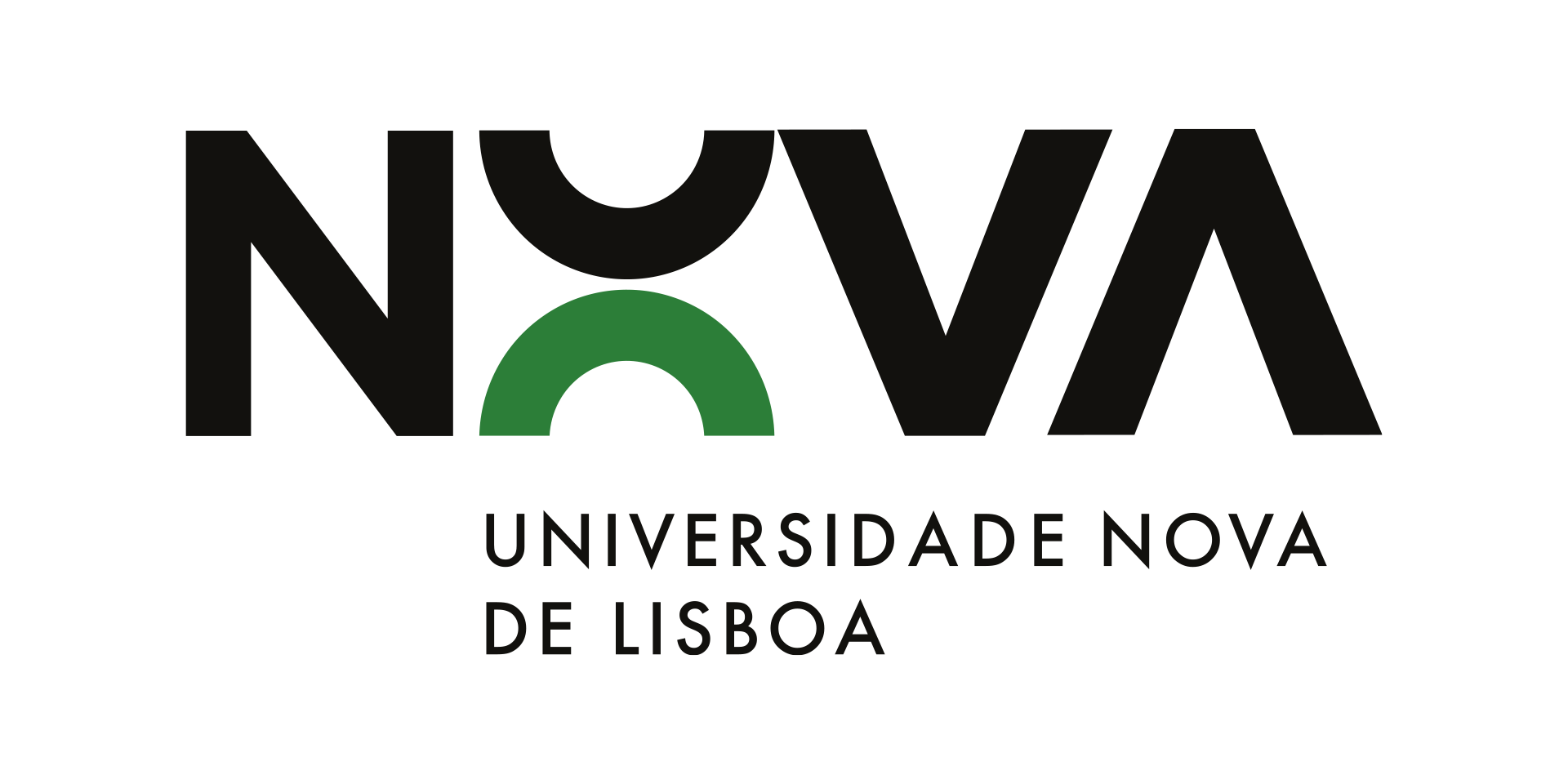
Rita Ponce
Researcher at ICNOVA, Invited Adjunct Professor at the School of Education of the Polytechnic Institute of Setúbal (Portugal)
Evolutionary biologist turned science writer and passionate about communicating science. I have a PhD in genetics and worked in evolutionary biology research. During my postdoctoral research I developed a great interest in communicating science to wide audiences, what led me into doing a Masters in Science Communication. Currently, I am a researcher at NOVA Institute of Communication and an invited Professor at the School of Education of the Polytechnic Institute of Setúbal. I am also a freelance science writer and science news fact checker — I find that writing about science is as exciting as doing science.
António Granado
Associate Professor at the Universidade Nova de Lisboa
António Granado is an associate professor with habilitation at NOVA University of Lisbon, where he co-directs the master in Science Communication, since 2011. For more than 26 years, he worked as a science journalist, mainly at Público daily newspaper, where he also was science editor, sub-editor-in-chief, managing editor and online editor. From 2010 to 2014, he worked as the online editor of RTP, the Portuguese public television. He holds a master degree in Science Journalism from Boston University (USA), and a PhD in Communication Sciences from the University of Leeds (UK). He currently is a WP leader of the science journalism residency program FRONTIERS.
Dora Santos Silva
Associate Professor at the Universidade Nova de Lisboa
Dora Santos Silva is an associate professor at NOVA University of Lisbon. She holds a PhD in Digital Media from the international program UT Austin | Portugal, a Master’s degree in Contemporary Culture and New Technologies, and a Bachelor’s degree in Communication Sciences (NOVA FCSH). She coordinates the Master’s Degree in Journalism, the postgraduate course in Communication of Culture and Creative Industries, and Obi.Media – Observatory for the Media Innovation. Her research focuses on cultural journalism, innovation in the media and other cultural and creative industries, and innovation in storytelling, which includes new formats such as solutions journalism, emotionality in journalism and community storytelling to combat misinformation and news deserts.
Inês Duarte
Junior Researcher at the Universidade Nova de Lisboa
I am a marine biologist with a BSc in Aquatic Sciences and an MSc in Marine Sciences – Marine Resources from the University of Porto. My research interests include sustainable aquaculture, fish immunology, and the decentralization of science. Passionate about science communication, I helped organize the European Researcher Night in rural Portugal, leading me to join the ARMA-SCI NGO team. Recently, I taught at Gomes Teixeira School Cluster, where I aimed to inspire students through STEM education. My driving goal is to promote environmental conservation and science literacy, and preserve cultural heritage, making science accessible and impactful for everyone.
Lidia Marôpo
Researcher at Interdisciplinary Centre of Social Sciences (CICS.NOVA) and Associate Professor at the School of Education of the Polytechnic Institute of Setubal
Lidia Marôpo is an Associate Professor at the Polytechnic Institute of Setubal, Portugal, and a researcher at the Interdisciplinary Centre of Social Sciences at Nova University of Lisbon, Portugal. She holds a Communication Sciences Ph.D. from NOVA University of Lisbon (2010), where she also conducted postdoctoral research on youth media audiences (2011-2012), both with individual grants from FCT. Her research mainly addresses the relationship between children, young people, and the media, focusing on digital culture in recent years. She has participated in international projects and networks such as COST Actions Transforming Audiences and ySKILLS and published her findings nationally and internationally.
Universidad Rey Juan Carlos
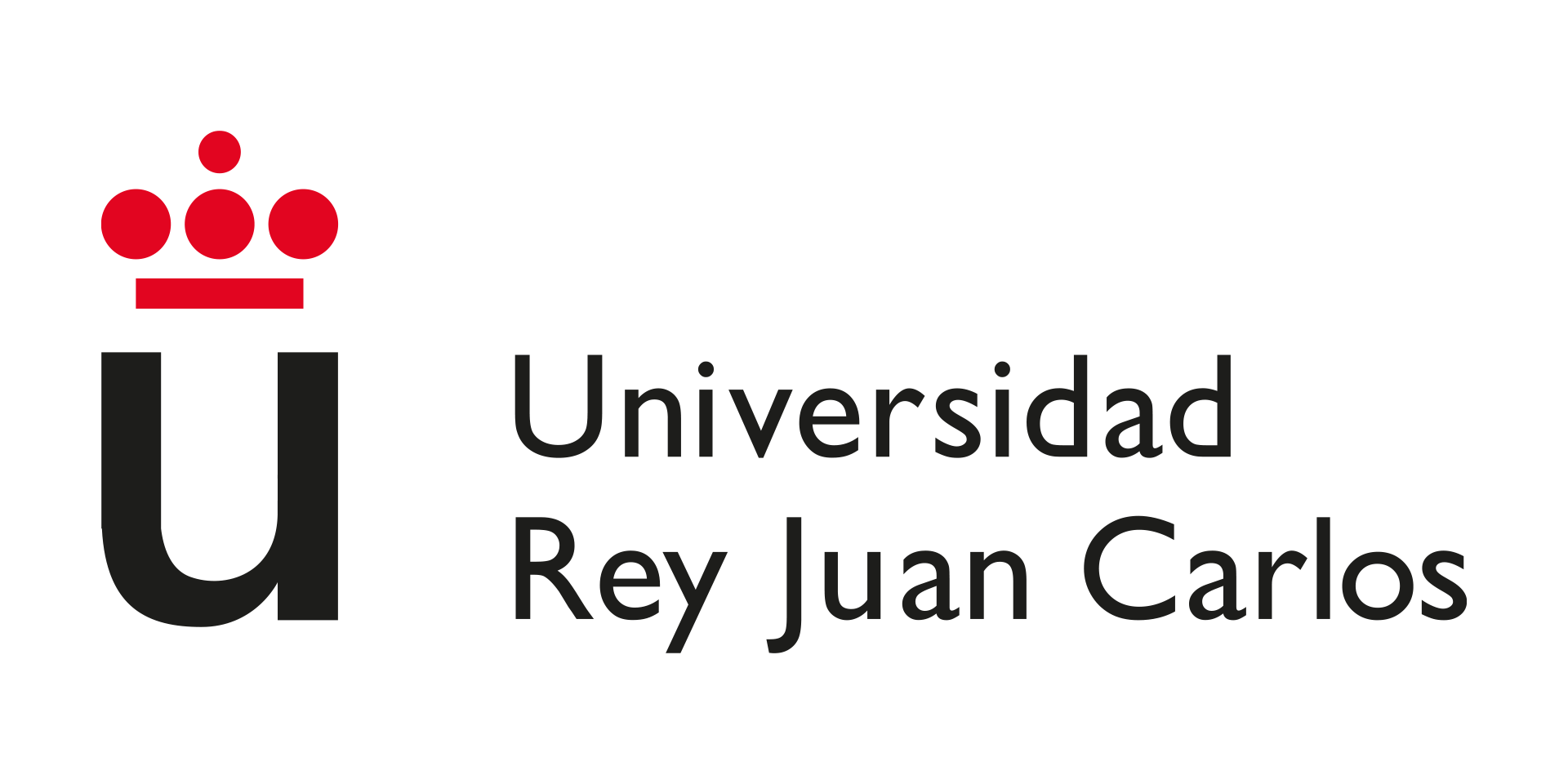
Antonio García-Jiménez
Full Professor in Journalism (Media and Communication) at the Rey Juan Carlos University (Spain)
Professor of Journalism at the Universidad Rey Juan Carlos (URJC). His teaching and academic career is linked to media documentation and the communicative practices of adolescents and young people in social media. In addition to academic production, she has directed and participated in many national and international research projects. In recent years he has also focused on disinformation and science communication. Director of the Communication, Society and Culture Research Group (GICOMSOC), he has been Dean of the Faculty of Communication Sciences at the URJC (2008-2014) and director of the Master in Communication and Sociocultural Problems (2015-2018).
Esther Martínez Pastor
Full Professor at the Rey Juan Carlos University (Spain)
Esther Martínez Pastor (esther.martinez.pastor@urjc.es) is a Full Professor in the Faculty of Communication Sciences at the University Rey Juan Carlos of Madrid. She is a PhD in Communication Sciences and has degrees in Advertising and Public Relations (University Complutense of Madrid), Law (UNED) and Criminology (URJC). Her research focuses on advertising, children and teenager, legal framework and self-regulation and emotions. She is the lead researcher for the project «Media representation of children’s self-harm in the media and networks,» funded by the National Plan of the Spanish Ministry of Science and Innovation. She is also the Co-Principal Investigator of the European project «Safer Internet Centre Spain 3.0» (SIC-SPAIN 3.0), led by the Spanish National Institute of Cybersecurity (INCIBE), which addresses the vulnerabilities of minors in social networks, particularly self-harm. She serves as the principal investigator of the COMKIDS research group at URJC. ORCID: https://orcid.org/0000-0002-2861-750X.
Marian Blanco-Ruiz
Lecturer (full-time non-permanent) in the Department of Advertising and Audiovisual Communication at the Universidad Rey Juan Carlos (Spain)
PhD in Media Research, Universidad Carlos III de Madrid (UC3M). Degree in Journalism and Audiovisual Communication from UC3M. Lecturer in the Department of Advertising and Audiovisual Communication at the Universidad Rey Juan Carlos de Madrid (URJC). Her lines of research focus on the analysis of gender representations in the media, new technologies in young people and gender violence. She coordinates and directs the Annual International Congress of Young Researchers with a Gender Perspective since its creation in 2016. She is co-director of the journal Comunicación y Género (UCM).
Beatriz Catalina-García
Senior lecturer at the Rey Juan Carlos University (Spain)
PhD from the Universidad Rey Juan Carlos, Madrid, Spain (2011). Degree in Journalism from the Complutense University of Madrid (1989) and degree in Political Science from the UNED, Spain (2014). Professor at the Rey Juan Carlos University in the Department of Journalism and Corporate Communication of the Faculty of Communication Sciences. She’s currently a researcher at the UNESCO Chair of Communication Research at the Universidad Rey Juan Carlos and Academic Director of Postgraduate Promotion at the same university. She has participated in research projects. She is author and co-author of several articles published in JCR and Scopus indexed journals. Her research interests include: audiences, radio information, digital sphere, uses and consumption of the Internet.
María Cruz López de Ayala López
Associate Professor, Department of Audiovisual Communication and Advertising, Universidad Rey Juan Carlos. Vice-Dean of Academic Affairs, Faculty of Communication Sciences, Rey Juan Carlos University (Spain)
María Cruz López de Ayala. Co-principal investigator of the Red-adjuven project and member of the research group on communication, society, and culture (GICOMSOC). Her main research areas are: digital consumption of adolescents and young people, family mediation, and digital vulnerabilities. An expert in qualitative and quantitative research methods and techniques, she has participated in various research projects, both in competitive R&D projects and contracts with public and private entities, especially related to the relationships of minors and adolescents with media and social network.
Manuel Montes-Vozmediano
Senior lecturer. Coordinator of the Degree in Journalism, Faculty of Communication Sciences, Rey Juan Carlos University (Spain)
Doctor of Science in Communication and extraordinary doctorate award from the Rey Juan Carlos University. Degree in Information Sciences at the Complutense University of Madrid (Journalism). Member of the Research Group on Communication Society and Culture GICOMSOC, has participated in national and international research projects. His research is oriented towards the visual communication and interaction with the media and advertising and associated social events to new forms of communication, in particular with regard to young people and adolescents. For Pearson Education has written four books and has published works in journals with high JCR impact factor as Comunicar, among others.
Ricardo Vizcaíno-Laorga
Associate Professor, Department of Journalism and Corporate Communication and General Coordinator of Communication Research - Doctoral Programme at the Rey Juan Carlos University (Spain)
Leticia Porto Pedrosa
Associate Professor at the Rey Juan Carlos University (Spain)
European PhD in Communication Sciences and Sociology (Complutense University of Madrid). Hired Doctor in the Department of Education Sciences (Universidad Rey Juan Carlos). Coordinator of the Degree in PrePrimary Education (March 2019 – March 2024). Lecturer on the Master’s Degree in Teacher Training (2016-present); Master’s Degree in Advanced Teaching Skills (2016-2018) and Educational Centre Management (2013-2017). Member of the Board of Directors of the International Association for Research in Sociology of Organisations and Communication (2013-present). Her main lines of research: socialisation of children through the media; children’s education and emotional development; forms of communication and social participation of young people; educational social responsibility and transparency in organisations.
Pablo Sánchez López
Visiting Professor at the Rey Juan Carlos University (Spain)
Pablo Sánchez López holds a PhD in Audiovisual Communication from Universidad Rey Juan Carlos. He’s a visiting professor in Media and Communication Studies at the Department of Audiovisual Communication and Advertising at Rey Juan Carlos University. His line of study is politics and social representation in communication. He has participated in research projects such as “Study of the conditioning factors of disinformation and proposal of solutions against its impact according to the degrees of vulnerability of the groups analyzed”, financed internationally by the Luca de Tena Foundation and Facebook or “Teenage self-harm representation in Social Media” financed by Spanish State Research Agency (PID2021-124550OB-I00).
Rebeca Suárez-Álvarez
Lecturer at the Rey Juan Carlos University (Spain)
Lecturer and professor at University Rey Juan Carlos (Department of Communication and Sociology). She also holds a PhD in Social Communication from CEU San Pablo University, as well as a Bachelor’s Degree in Journalism from Complutense University of Madrid (UCM). In addition, Professor Suárez has completed two master’s degrees: one in Radio from CEU San Pablo University and another in Communication of Public Institutions and Policies from UCM. Her main lines of research are communication and vulnerable audiences (specifically minors), digital media, media literacy and digital competence. She has participated in diverse research projects and she is a member of the research group focused on Communication, Society and Culture (GICOMSOC).
Elena García Buitrago
Associate Lecturer in experimental sciences at the Didactic of Experimental and Social Sciences and Mathematics Department of the School of Education, Universidad Complutense de Madrid.
I have been linked to the Dept. of Didactics of Experimental Sciences (UCM) since 2015, initially as collaborator and from 2019 as a teacher. Also, I have tutored numerous Bachelor’s and Master’s degree final projects, and I participate in different innovation projects about the importance of soil, sustainability and virtual travels. I am currently studying for a PhD in the area of Science Didactics about pseudoscience beliefs among preservice teachers and how to fight them, which has allowed me to attend several conferences and write some papers.
Blanca A. García Yelo
Lecturer Professor in experimental sciences at the Didactic of Experimental and Social Sciences and Mathematics Department of the School of Education Universidad Complutense de Madrid. Coordinator of professional practices I of the Early Childhood Education degree.
Degree in Geology and PhD in Paleontology from the UCM, she is a member of two research teams in ecology and environmental education and mammal evolution at the UCM. She has participated in several competitive research projects with public and private entities focused on the analysis of the evolution and paleoecology of mammals in the Iberian Neogene, one of them currently in force. Her main current research areas are focused on the use of fossil sites as a didactic resources, the analysis of experimental methodologies in the field of science and curricular analyses.
Eugenia García García
Lecturer Professor in Didactics Experimental Sciences of the School of Education-Teacher Training Center of Universidad Complutense de Madrid.
I developed my doctoral thesis on hydrothermalism and mineral deposits at UCM. I began my teaching career in earth sciences and soil science, and since 2005, I have been teaching and researching experimental science didactics for trainee teachers at different levels. I have supervised numerous master’s theses and currently supervise two doctoral theses. My research interests include designing analogical and digital resources for science teaching, activities for teaching soils, groundwater, sustainability, and climate competence, as well as detecting and refuting pseudoscientific ideas by fostering critical thinking. I belong to the research group Ecology and Environmental Education at School. I have coordinated science fairs and participated in national and international projects.
External Collaborators
Tania Jenkins
Project Coordinator SchoolFan
Αfter a PhD and two postdocs in evolutionary ecology, I transitioned to a career in science communication and citizen science. Between 2018-2023 I chaired the EuroScitizen COST Action, which resulted in SchoolFan. In my most recent project, I co-designed and implemented ecological research with fishers from Lake Geneva. I recently set up my own company, Cosie- Science that aims to co-create science and impact engagement with society. I consult in how to co-design, implement and evaluate research that aims for societal impact.
Miguel Ferreira
Science Communicator/Researcher at Centre for Functional Ecology - University of Coimbra
Miguel Ferreira has a degree in Biology (2005), a master’s in Quality and Environmental Management (2011) and a postgraduate degree in Communication (2015). He completed the Audio-visual Post-Production course at the Restart Institute of Creativity, Arts and New Technologies and worked for six years as a Science Explainer/Coordinator at Lousal Ciência Viva Centre. He is currently a Science Communicator and a Researcher at the Centre for Functional Ecology of the University of Coimbra. He recently concluded his PhD in «History of Science and Scientific Education» with a research project focused on science videos.
Raquel Branquinho
Assistant Researcher at REMA, Faculty of Arts and Humanities, University of Porto
I am a microbiologist passionate about science communication! My research focuses on decentralizing and democratizing science in rural regions. At the heart of my work is a commitment to promoting community-driven science initiatives that drive positive change and empower underserved communities, while also bridging the gap between academia and societal needs. This dedication led me to co-found and preside over ARMA-Sci NGO. I have also been developing various public engagement and informal education initiatives aimed at fostering scientific literacy and involving communities in science. Additionally, I am particularly passionate about fostering interdisciplinary and collaboration to address complex challenges in science.
